Why Being a Pain in an Ass is Essential to Human Survival:

From a Recent OxfordSEO Literary Representation Press Release: 09/23/2022. 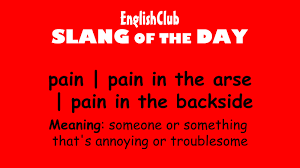
A lot of people don’t like our resident unarmed poet Igor Goldkind. Although hard pressed to detail exactly what the source of their antipathy is, when asked most people who’ve met or know him agree on one thing:
Igor is a pain in the ass.
Some would go as far as to say a Royal Pain in the Ass; although any association with the recent demise of Queen Elizabeth or the Royal family in general, is merely conjecture.
When asked about his reaction to this near universal judgement, Igor Goldkind tends to shrug his shoulders and agree:
“Sure, I’m a pain in the ass, especially to anyone wedded to static protocols, conformist mediocrity and any rule that should be followed blindly because ‘that’s the way we’ve always done it'”.
Let’s look at a recent example of his ass-painery. Due to enormous stress and harrassment inflicted by certain individuals (to remain nameless until the court dates), Igor was recently diagnosed with a minor heart failure. After initial panic and a visit to the ER, the initial diagnosis, although precluding an imminent heart attack did necessitate a referral to both cardiology and vascular specialists to eliminate possible causes.
Both were seen and a routine series of tests were scheduled for this week including a Stress Echo Heart test, a heart monitor and a spectogram. Igor called his daughter and without freaking her out, brought her up to date and then gladly picked up the dice to his destiny and gave them a roll.
3 tests were scheduled for this past Monday, Tuesday and then tomorrow. A hectic week to put one’s heart through the paces.
On his way to his first appointment for the monitor last Monday, Igor was surprised to receive a text cancelling the appointment 45 minutes before hand. This was followed by two more text messages cancelling all of his heart monitoring tests without explanation apart from the fact that his insurance provider Molina Healthcare had denied them. Pulling his Thunderbird to the side of the road in Mission Bay, Igor proceeded to telephone his consultant and then his insurance provider to determine the cause of the cancellations.
As light transpired the insurance company’s independent arbitrator had determined that the tests were unnecessary as Igor had never had a pacemaker or open heart surgery. An insurance company administrator who had never even met Igor Goldkind, much less examined him, could overrule the expertise of his health provider and two consultants he was referred to who had examined him.
Hours of being placed on hold, waiting for supervisors, lodging complaints, grievances and appeals, Igor was able to get a call back from a Molina administrator who apologized for the last minute cancellations and reinstated the tests, albeit now delayed by two weeks.
However, our resident pain-in-the-ass wasn’t satisfied with his own private victory. Now that he has a member of the insurance company’s management on the phone, he demanded to know why Molina could adopt this absurd and potentially life threatening policy of over ruling of health specialists by a bureaucrat intent only on saving money?
A grievance was filed on his behalf and this morning he received a telephone call from an executive VP of Molina, once again apologizing for his treatment and then assuring him that based on his complaint, Molina had reviewed its approval policy and would from now on no longer deny a test recommendation without first consulting with the specialist who had recommended the test in the first place….across the board for all members!
This is the benefit of being a pain-in-the-ass, when you’re acting not solely out of personal interest but out of precedent and principle.
So like him or not, Igor Goldkind leads his life based on George Bernard Shaw’s Maxim:
“A reasonable man expects to adapt to the world. An unreasonable man expects the world to adapt to him. Therefore, all human progress is made by unreasonable men”.
And yes, we do do Igor’s PR!

A Throw of the Dice [excerpt]
Stéphane Mallarmé – 1842-1898
NOTHING
of the memorable crisis
or might
the event have been accomplished in view of all results null
human
WILL HAVE TAKEN PLACE
an ordinary elevation pours out absence
BUT THE PLACE
some splashing below of water as if to disperse the empty act
abruptly which otherwise
by its falsehood
would have founded
perdition
in these latitudes
of indeterminate
waves
in which all reality dissolves
EXCEPT
on high
PERHAPS
as far as place can fuse with the beyond
aside from the interest
marked out to it
in general
by a certain obliquity through a certain declivity
of fires
toward
what must be
the Septentrion as well as North
A CONSTELLATION
cold from forgetfulness and desuetude
not so much
that it doesn't number
on some vacant and superior surface
the successive shock
in the way of stars
of a total account in the making
keeping vigil
doubting
rolling
shining and meditating
before coming to a halt
at some terminus that sanctifies it
All Thought emits a Throw of the Dice.
From Collected Poems (University of California Press, 1994) by Stéphane Mallarmé. Reprinted by permission of the publisher.
Breathless: A Nostalgia for Oxygen

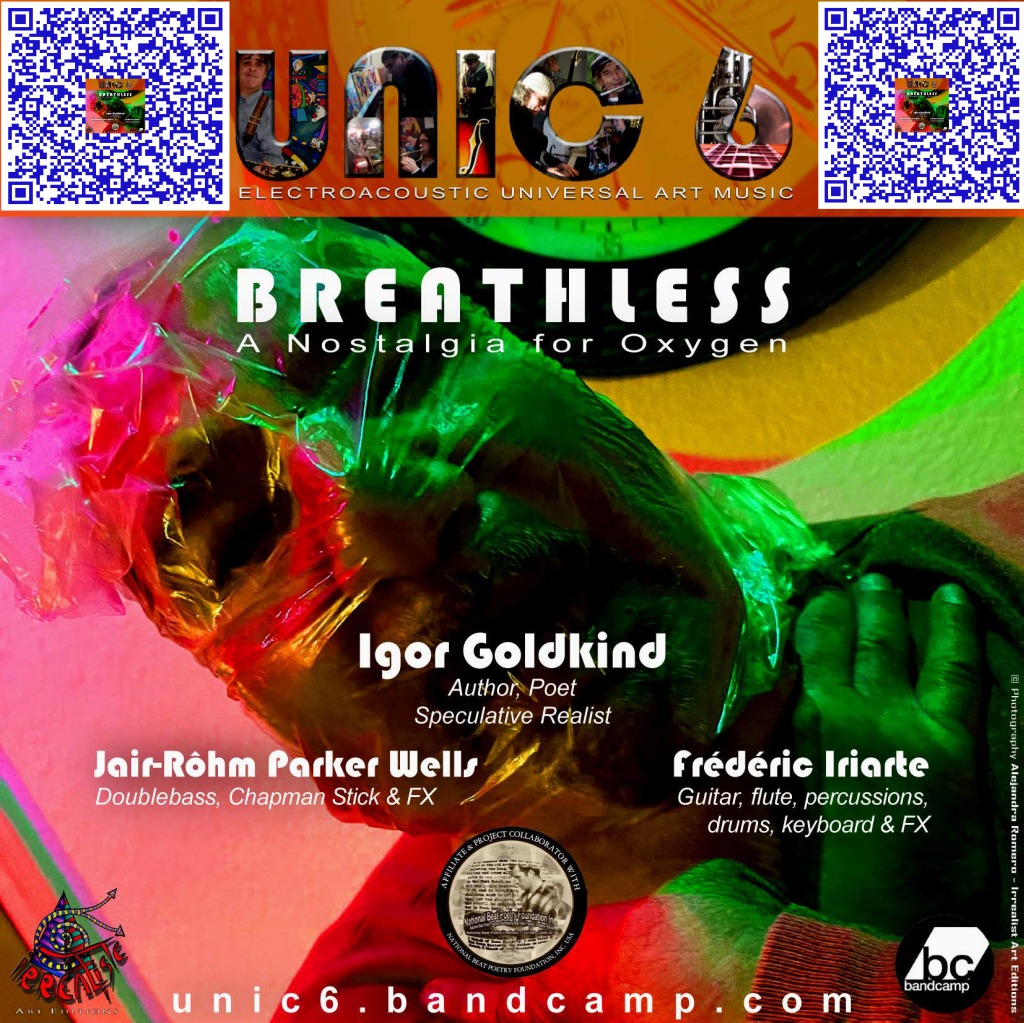
I’m a Poet, a Producer and lately a Publisher of aesthetic, sometimes eclectic content that speaks to the truth of living your life in today’s moment of existence. Beyond the Real World is the Actual World, which I prefer to inhabit. There really is only one world but social delusions, language and mathematics make us concoct a duality between the “Real” and the “Actual”. It’s just a trick of the light on our senses.
Oddly and recently, I’ve received a lot of flak and unarticulated hostility from people who just like the way things are. Either they get some advantage out of our current state of disconnect or they’ve become so habituated to futilely struggling, to being dehumanized that they prefer what they’re familiar with rather than facing the unknown of change.
Having a back ground in ‘technology’ I do know one universal truth about ‘systems’ and that is ‘systems’ can always be improved upon. In fact if ‘systems’ aren’t being perpetually improved, they fall by the way side and become impediments to useful change.
As is with technology, so it is true of the human community and its social structures. My father was an anthropologist and a sociologist at a time when the very word ‘society’ was being challenged as having no meaning.
My work is about returning meaning to the term “society”. to the set of complex interactions we consider collectively as the norm and worth compromising our individuality for. Society is us and what we make of it, every day of every interaction you have with another human, either well known or a stranger to you. How you treat others out of fear or openness is multiplied by millions and the sum total consists the society we are all part of and are all living in.
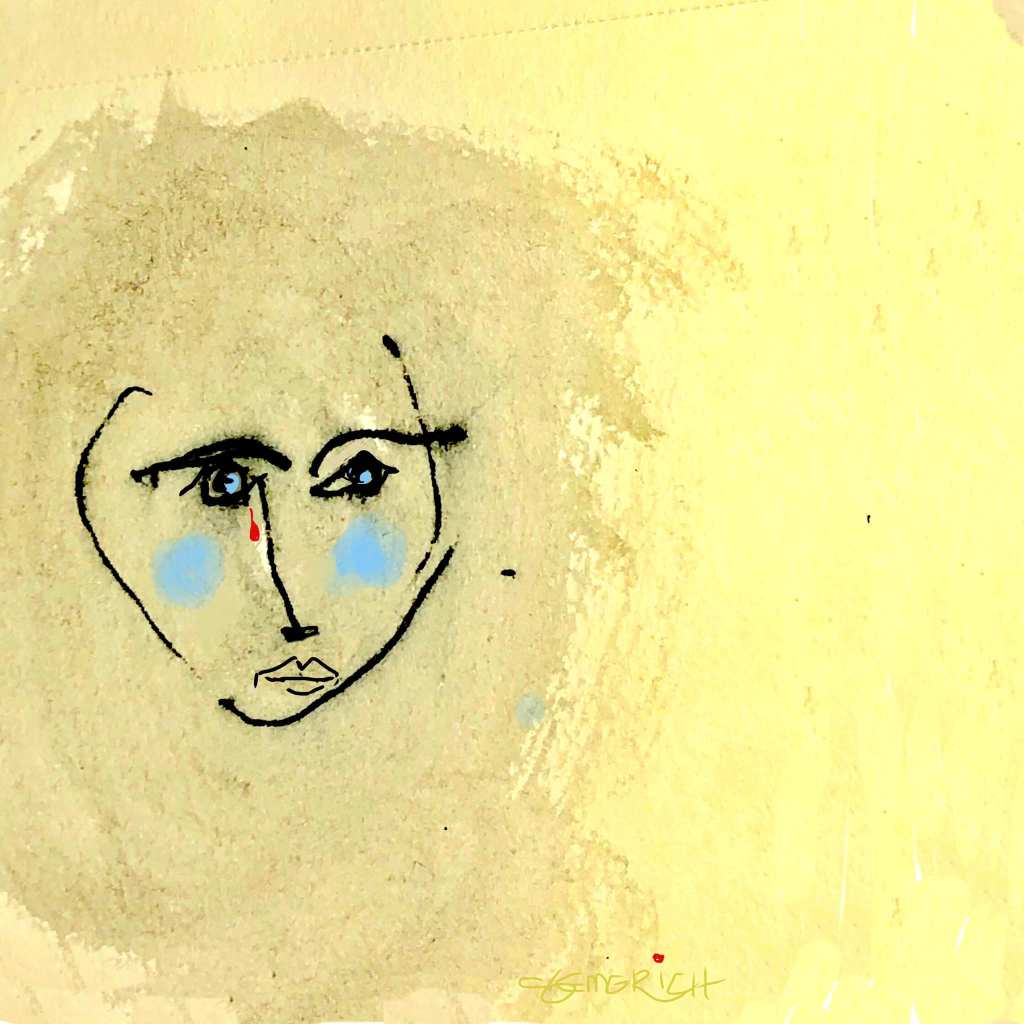
No man is an island and no woman can be exiled to one.
This is not about politics or ideology, this is about awareness and mindfulness as to how each of us is as part of a whole. There’s only one race, the human race and you are part of it. The only question is with what degree of awareness are you running in the human race?
Looking backwards, in hindsight, I now realize the the steady stream of anonymous antagonism and threats I’ve received over the past year all started when my album BREATHLESS – A nostalgia for Oxygen was released last year on Bandcamp by my spoken word producer Frédéric Iriarte and largely composed by my art brother Jair-Rohm Parker Wells.
I believe it is the most popular track from the album, I CAN’T BREATH, the last words of George Floyds recited as a spoken word, ‘found’ poem by a ‘white’ voice that triggered the attention that all to soon became menacing and I have had to take unprecedented steps to protect myself from.
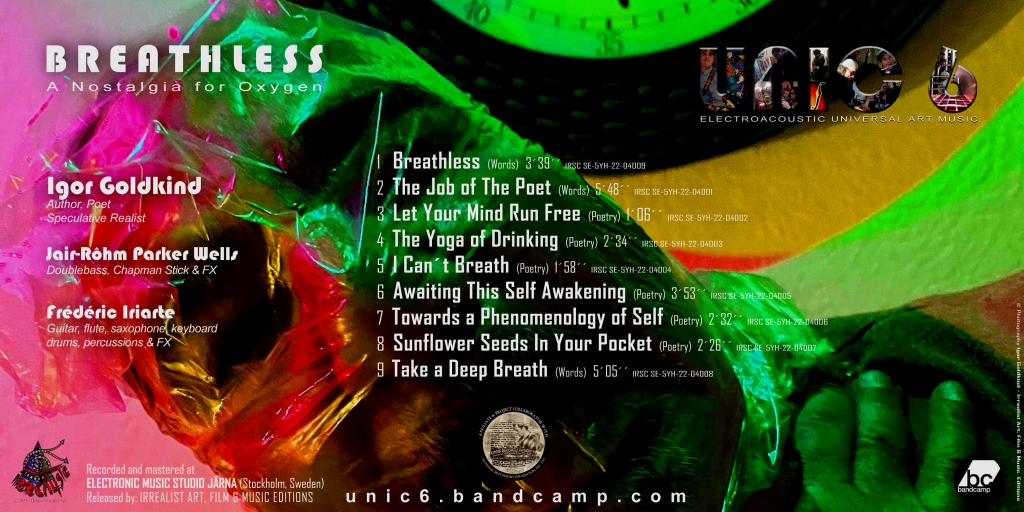
It is a tremendous album and well worth the free fee by which you can listen to it. I assure you that you’ve never heard anything like it before although I’m sure you’ve heard Ornette Coleman, Laurie Anderson, Willian Burroughs, David Byrne and Anthony Braxton. If not, you should listen to them too as they are the inspirations for our album.
Thank you for your attention, it’s the most precious commodity in the universe: your attention.
Banned From Facebook, Again…

What can I say?
The month of January was silent due to my having accused a local mask-denier of demonstrating “a lethal stupidity”. 30 day suspension for “bullying’. I assume based on her complaint that I was telling her not to spread misinformation.
My latest trespass, again for another 30 days (first 7, until I appealed the decision), was for taking issue with a Trump supporter on one of Alexandra Cortez’s threads.
The woman was claiming that AOC had made up her account. A Portuguese participant commented in AOC’s defense whereupon the virulent QAnon proponent told the Portuguese national that he was a foreigner and to mind his own business, going back to his own country. I immediately responded in his defence by inviting him as my guest, to comment on anything he wanted to in the land of freedom of speech and then chastised the woman to stop being an ignorant American.
She complained that I was nationally slandering her for being an American manifestation of supreme ignorance. I was again suspended from using Facebook for 30 days, 27 more.
My appeals have been well reasoned and completely ignored.
I am awaiting the moral judgement of the algorithmic overlords by which human employees make decisions at Face Book. Repeatedly, I have been censured and censored for challenging misinformed comments that Facebook itself, if it contained one iota of the moral standard it claims to hold, should have caught in the first place!
If challenging and taking issue with those who question the legitimacy of the election, the validity of the pandemic or its remedies and continue to spout dangerous, Trump inspired, racist and and anti vax madness goes against Facebook’s Community Standards then those standards and their deployment are in serious need of actual public review and scrutiny.
In the meantime, I shall wallow in the righteousness of my exile.
Dostoievski won’t be drinking alone tonight in the Facebook Gulag.
Take a look at my new book and get yourself a Free review copy!
https://takeadeepbreath.one
The Nazis Changed Their Uniforms


My paternal grandfather Mordecai Goldkind (Morris) was a Polish Jewish immigrant from outside Lodz. He came to the US via Ellis Island fleeing the Czar’s Cossacks first working on the New Jersey shipyards and then opening a successful shoe-maker’s shop in ’30s Brooklyn.
My father grew up listening to Hitler’s speeches on the radio as every other Jew living in America at the time did. When he turned 17, he enlisted.
There was no choice in the matter.
My grandmother’s heart broke packing her son away to boot camp but even she knew that there was no choice. The Nazis were coming after us and we had to stop them or die trying.
The war crippled my father.
Emotionally, psychologically.
I know now that he had to kill other men, German men at close hand.
I knew that speaking fluent German he loved the German people and their culture. I know that killing another man killed part of himself.
He told me that he survived by giving up the idea that he would.
The story of what happened after his return includes the story of his son, my life. My father was broken by that war fighting the fascists in Europe so that we would not have to fight them here in America.
There was no choice.
When I was a boy and my grandparents came to visit or we visited them, my grandfather Mordechai would talk about Israel but he and my father would sometimes talk about the Nazis. I remember my grandfather pointing his finger at me in the middle of my silent witness of their conversation:
“Igor, don’t you ever fool yourself into thinking that we beat the Nazis and they all went away. They never go away. They wait for the right time and then they just change their uniforms.”
Was I 6, 7?
I don’t know.
All I recall was the deep bootprint of my father and his father warning me down the generational ladder to be vigilante. To watch for the signs. That the Nazis do not go away. That oppression, power, cruelty and inhumanity does not evaporate. That they linger waiting patiently for the right time to put their new uniforms on.
Now is that time.
I can see the MAGA uniforms.
I can see the detention camps, the forced hysterectomies, the torture by negligence of thousands of children.
Can’t you?
I can see the exploitation of a pandemic for deliberate eugenic population control under the mask of ‘herd immunity’.
Can’t you?
I can see dissidents and protestors being criminalized and imprisoned for 10 years for defacing a statue.
I see our civil rights being teargassed into the ground.
Can’t you?
I can see the violent racism on the streets, the white power fanatic infiltrating lawful protests to vandalize, destroy and cast blame on the citizen protestors.
Can’t you?
I can see the police getting more and more aggressive, shooting more and more unarmed citizens, jailing more and more dissidents like in Russia or China.
Can’t you?
I can see America’s future as a giant, fat man’s golf shoe stomping on the face of freedom and justice forever.
Can’t you?

Can’t you do something?
Vote Biden/Harris 2020
There’s really no choice.
What He Said She Said (v2)

She said Hii!
I said hello
She said let’s go for a drink.
I said sure.
She asked ‘what are you having’?
I said, whatever you want.
She said, thank you for thinking of me first.
I said your pleasure is all mine.

Later she sent me a text.
‘Have you ever tried phone sex’?
She said.
I said ‘Sure’.
She said how about now?
I said I need to go home.
She said she did too,
She sends me a naked picture of herself.
“Are you hard”? She asks
‘Sure’, I said.
“I want you to fuck me”, She said.
‘Shall I come over’? I say.
“No”, she said.
“Let’s meet and fuck tomorrow.
But for right now, just this moment
Can you just talk to me”?
‘Sure, ‘I said.
“Right now I just want you to tell me how you’d like to fuck me.
‘Do you want me to come over,’ I said again.
“No,” she said,
“Don’t come over
Just talk to me and make me cum.
I just love the sound of your voice”.
‘Sure’, I said. And she did.
‘Are we still getting together tomorrow by the fountain in the park’?
I asked, after a while.
‘Of course’, she said.
‘Great’, I said.
The next morning she sent me a message:
“I’m sorry but your age is something
I just can’t get past,
I’m not meeting you next to the fountain, I’m sorry.
You’re just too old and I shouldn’t have let things go so far
I just can’t get past that; your age”
‘Sure’, I said. ‘Neither can I without fatal results’.
She did not laugh
“I’m sorry, but that’s how I feel” She said.
‘That’s how you feel’, I said.
Later that morning I died my hair black
and left dark stains in the sink.
Poetry Therapy


Everyone wants to be free.
ven from the things that once gave us comfort.
We are like children who swap our blankets
For softer ground.
So why do you wait to be free
When the keys to your cage
Are hanging right outside your front door?
Reach through the bars with your hand
Stretch your fingers far and bend your will around the bars.
Your mind is your best friend, your best teacher, your best doctor,
Whether you believe it or not.
In spite of everything you’ve done to yourself,
Your mind really does care about you and often thinks of you, quite fondly.
Just let your mind mend itself
Heal yourself with a few choice words.
Your own words.
When you say:
The truth is not a cold tombstone
The truth is not a judgement
The truth is a flowering realisation inside your own living mind.
Pulling you outwards, & forwards, enraptured by Time.
When my breath and
My will are as one,
The universe swallows me
Whole.
On the Southside of Border Town

13,200 brown children are detained.
Taken from the arms of their parents by American immigration authorities.
Infants are held tightly, cared for by other children
In dirty, neglectful, and dangerous conditions
That scar the southern border of the American Dream
The SCOTUS Jenny Flores settlement mandates by law that children must be held in safe and sanitary conditions,
“Moved out of Border Patrol custody without unnecessary delays”.
This is the Federal Law
Except children are taking care of children on the south side of Border Town
The conditions the human lawyers found, they found inhuman
Flu and lice outbreaks left untreated,
Children filthy,
Sleeping on cold floors,
Guarding each other from the guards.
Most have been there for weeks.
Constantly switching blankets between covers and floor mats.
Everyone is crying, crying all the time
Only children are taking care of children on the south side of Border Town
Across El Rio Grande; across that lazy river
A scared little girl stands on the safe American shore; then jumps back in El Rio
To reach her father and cling to him as he swims back to Mexican shore to retrieve her mother.
El Rio’s currents care not of human intent;
The river just flows and it flows and it flows,
Until the little girl and her father are washed up, facedown on the shore.
Her arm still protecting him, curled around his neck.
You know, just like your daughters and mine have done countless times before.
Dead children are taking care of their dead parents on the south side of Border Town.

A treacherous river divides this nation
There are twisting bends and perilous nationalist waters to traverse.
When death took the scared little girl and her father, I hope he took them together
So that they can be forever together
If only in the little girl’s dream.
When will we stop murdering the poor just for being poor?
The only document you need to prove you’re human is the record of your deeds
While children are taking care of children on the south side of Border Town
A 2-year-old boy locked in detention, wants to be held all of the time.
He has wet his pants and has no diaper
He is wearing a mucus-smeared shirt.
He does not speak.
Two detained girls, ages 10 to 15, have been doing their best to feed and soothe the clingy toddler.
Children taking care of children
The 10 year old girl speaks for the quiet boy:
“A Border Patrol agent came yesterday and asked me’:
‘Who wants to take care of this quiet little boy who nobody wants?’ So I said us.
Because only children are taking care of children on the south side of Border Town
“Nor shall any State deprive any person of life, liberty, or property,
without due process of law; nor deny to any person within its jurisdiction the equal protection of the laws.” ~ The US Constitution
So You Think You’re Going to Shoot Me?


So you think you’re going to Shoot Me?
I got news for you goyim,
You’ve been shooting at me for 900 years
From arrows to bullets to canon and you still haven’t hit me.
Because I am no other than you.
How can I replace you when I am you?
Open your eyes, you are shooting the gun at yourself.
You don’t get it.
This must be the trick of the devils’ twisted tongue, right?
The one that tries to deceive you
With the facts of truth
Poured from the grail of reason.
Go on, have a gulpful .
No, you can’t shoot me, you can’t even aim straight.
Your hatred is so predictably boring,
Always looking for someone else to blame
For your failure as a human being.
Anyone should do, but
Just like a bad movie cliche, you pick the Jew.
How can you shoot me,
When most of us are already dead?
Replaced, misplaced, driven from your nations’ borders.
Baked in your ovens.
Never even pausing
To wonder what the difference ever really was.
Now we have nations, guns and missiles and
Our own black-booted armies, to protect us from bad shots like you.
To protect us from everyone but ourselves.
Now we can sip from the same blood cup,
While hating then shooting,
All of the Other Jews.

Notes from a Facebook Exile


Once again the ghostly powers of Facebook have judged me and found me wanting.
Or wanting of the veneer of non threatening, amiable posts. Nothing that would offend a Humming Bird of nerve endings. A Calvinist shaking in their boots. I’m not a Facebook post, you don’t have to like me!
My grave offence was to post a photograph of the great American poet Allen Ginsberg standing naked on a Moroccan beach. The original naked poet; metaphor and literal combined into one. His words, not his images were deemed obscene way back in the last century. There was a public trial and unlike Socrates, Ginsberg (and City Lights, the publisher) were both found not guilty of obscenity. Howl was deemed a work of art and protected under the first amendment. Why doesn’t Facebook abide by the first amendment instead of hiding like a coward behind their Emerald City curtain of Community Standards?
And why don’t Americans know their own history?
I had the opportunity to meet and talk with Allen Ginsberg during my Freshman year, when he had come to do a reading and lead a group meditation paying his dreadful table accordion. Was I 17 or 18? I was studying Heidegger and Charles Olsen, the Action Poet; Kandinsky’s New York roommate right round 1959 thereabouts, when the photo of Ginsberg on the Beach was taken. But I knew all of his work, inside and out. I was never gay but Ginsberg made me want to be!
I had stopped Allen in an outdoor corridor lined by lawn between two campus buildings. I was armed with my copy of the first edition City Lights Kaddish epic that I had found by blissful chance in the long gone used intelligentia bookstore at the corner of College and El Cajon Blvd, in San Diego, over a lifetime ago.
Allen looked at my book and gladly signed it. “I haven’t seen a first edition of these in years!” I told Allen about the used book store in San Diego where I had gone through all of his poetry and Kerouac and Cassidy’s First Third and Dylan’s Tarantula, Alan Watts, D.T. Suzuki’s 3 volume Essays on Zen, all bought and consumed at this temple to beatitude at the cross roads of the world. I didn’t tell him how in high school we used to climb to the top of Cowell Mountain and howl the words to Howl at the valley unfolding beneath us. We didn’t know what hungry junkies were quite yet, but it sounded good and it was real. As real as the suburbs of San Diego can ever be.
In the past present, Allen handed me my book, more of a pamphlet, back and looked me up and down and smiled. It was a genuine smile and not the least bit lecherous considering what he said next.
“Would you like to come up to my room, it’s just over graduate housing? I can show you some poem books you haven’t seen. I knew what he meant but I was so stunned dumb by the proposition (Allen Ginsberg!). I stuttered something still trying to make up my mind before I spoke. But alas, fear of the unknown vanquished my curiousity or perhaps it was my vanity to be loved by a star that was defeated.
Nonetheless I must of said something because we went on our merry ways, my thanking him a little too profusely and the back of his bald head bobbing down the corridor.
So when I posted the photo a young Allen standing nude on a Morrocan beach, I kind of felt like I had earned the right to share his image, naked and vulnerable for the sake of a poetry reading which it was more than certain that someone would recite a Ginsberg-eque poem.
The Philistines may have conquered the machines but not me as of yet.
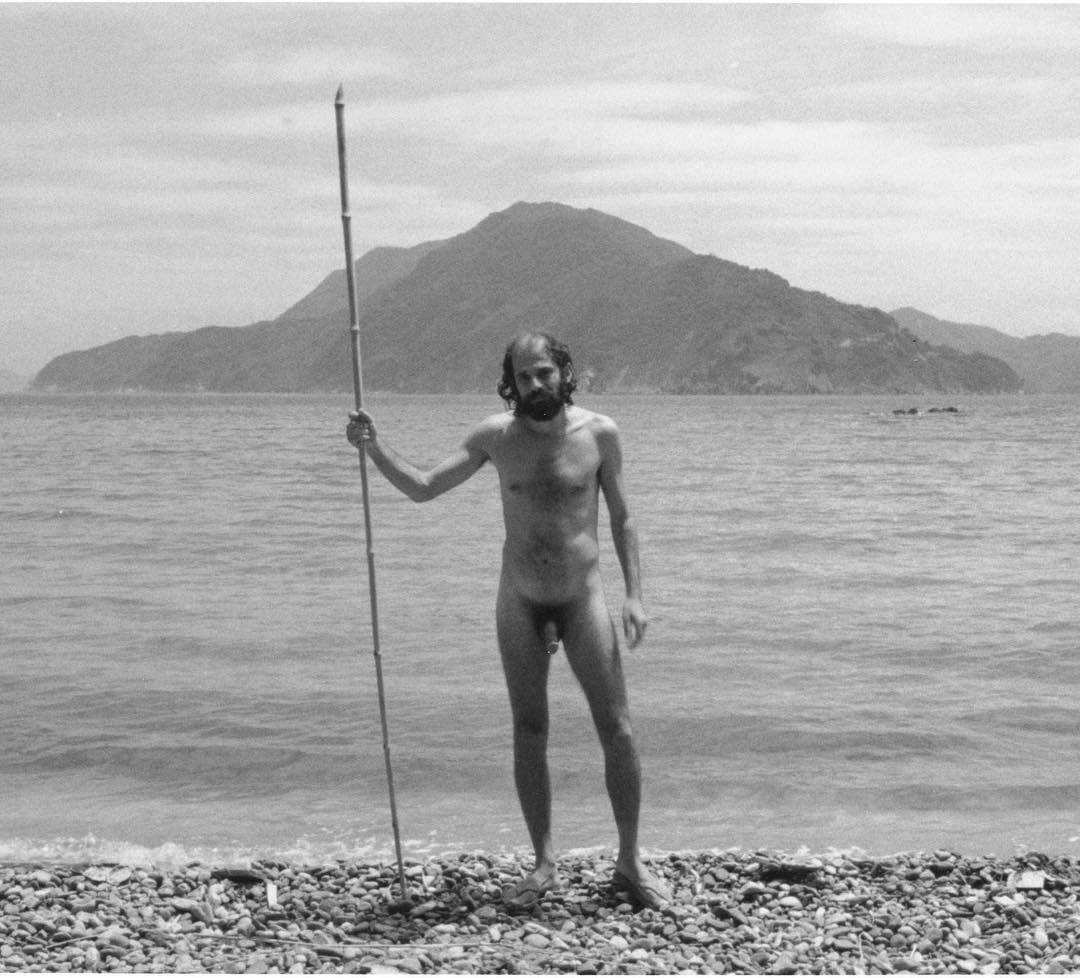
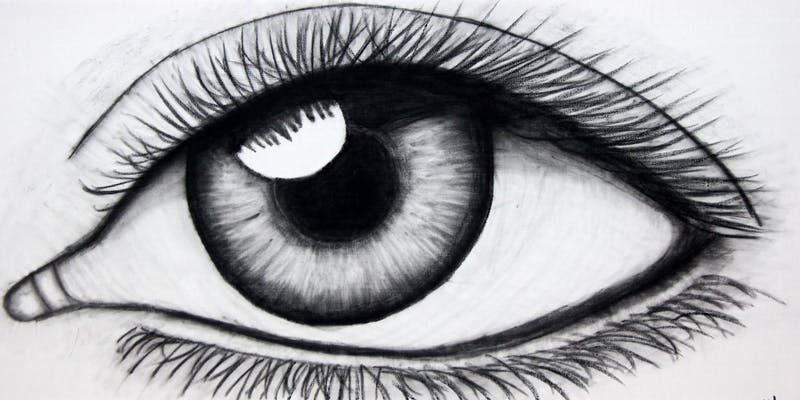
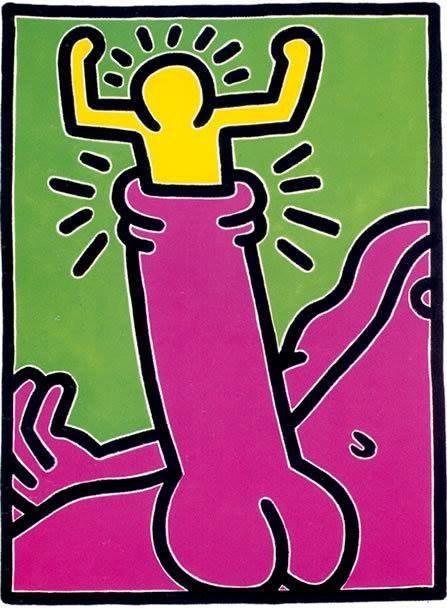


Facebook is Anti-Culture

Facebook is Anti-Culture
I’ve started this post after returning from a 60-day ban from Posting, Liking, Communicating, Joining, or Connecting with anyone else in the Facebook Community.
Censorship, the suppression of words, images, or ideas that are “offensive,” happens whenever some people succeed in imposing their personal political or moral values on others. Censorship can be carried out by the government as well as private pressure groups. ~ The ACLU
What Was My Crime?
My posting one of my own published poems from my book Is She Available? that had been posted in Facebook at least thrice before without repercussion. and is currently available in dozens of libraries and bookstores throughout California and soon to be released in the UK. The visual interpretation of a love poem by the Designer/photographer and internationally renown artist/typographer Rian Hughes entitled:
I Missed Your Scent in Paris
Although his image was a black and white stylized photograph of a woman where if you squinted and looked real close you could make out the shadow of half a nipple showing, (which is exactly what a Facebook employee would have had to have done in order to render judgement that Tian and my work contravened Facebook’s community standards.
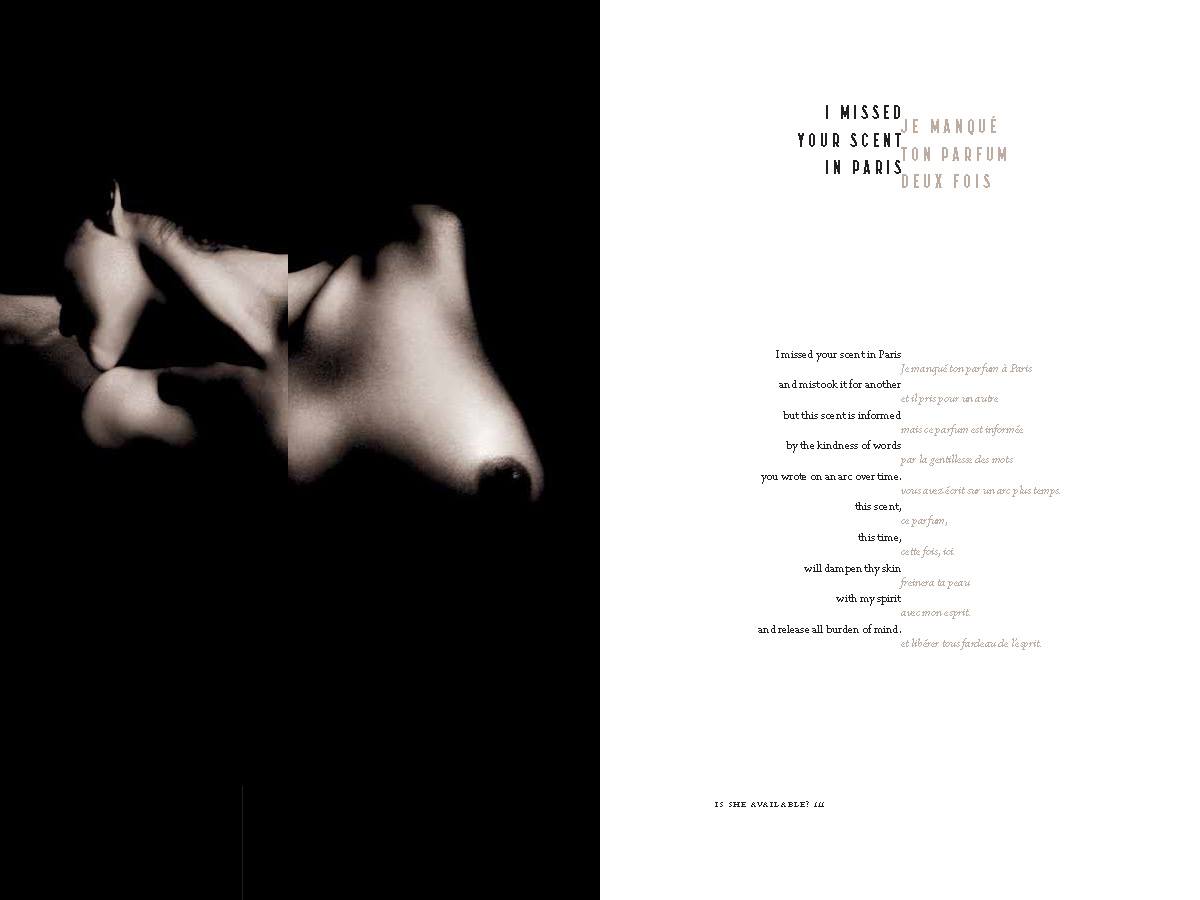
Censored by Facebook
The Poem and Rian’s photo interpretation of the poem were not obscene, disgusting nor gratuitously offensive in any way. Unless of course, you consider the human body in itself to be obscene, in which case I strongly suggest you seek therapeutic help as you clearly entertain unhealthy, self-hating, anti-social thoughts.
Instead, if not the poem, then certainly the photograph of the semi-nude woman is a work of art. It is obvious to anyone who reads and looks that it had no other intention. Not being able to distinguish between pornography and erotic art is one of the great threats Facebook’s dumbed down lack of discernment poses to the thriving of a culture.
––––––––––––––––––––––––––––––––––––––––––––––––––––––––
Art is the science of culture. Both are experiment–driven.
~ Igor Goldkind
–––––––––––––––––––––––––––––––––––––––––––––––––––––––
As community-oriented and community-sounding Facebook professes to be (in its language and self-justifications of its censorship), Facebook is the enemy of culture. As well as the enemy of the community of humanity that shares the values that a free society comes hand in hand with expression free from censorship; as long as the expression poses no harm. Otherwise, it is not a free community.
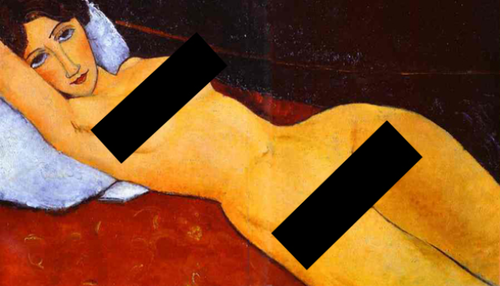
“To destroy a people, first destroy their culture.
~ Mario Torero
What is it exactly about the half shadow image of a woman’s left nipples poses a threat to anyone? The last time I checked, a woman’s nipple is the source of nourishment for all of us, male and female at one time or another.
To censor the image of a human nipple is to censor the truth of what it means to be human. How can I prove this? Look for yourself! Apart from a minority of our fellow hairless apes who have lost them in accidents or horrific burns, we ALL OF US HAVE NIPPLES! It is the truth of who we are and as an artist, as a poet, I am only interested in the truth of who we are. Not the twisted Calvinist attempt at reversioning a reality where angels never fart and genies have no belly-buttons.
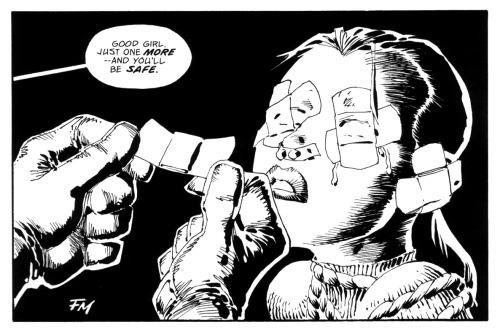
I know for a fact that genies do have belly-buttons, I’ve seen them with my own eyes! And as far as angel farts go, they smell better than your own.
Article 10 of the United Nations Human Rights Act protects our right to hold our own opinions and to express them freely without government or private interference.
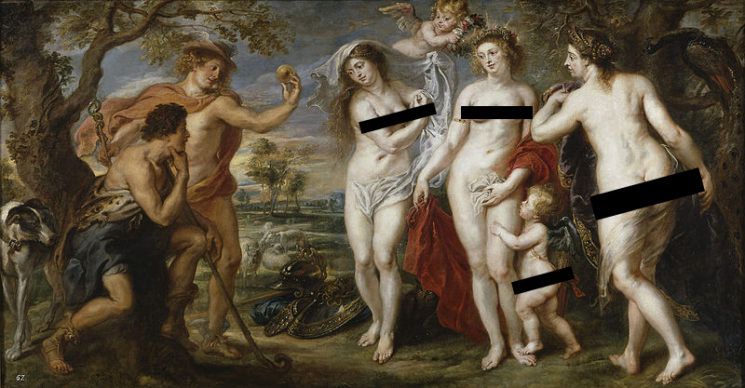
This includes the right to express our views aloud (for example through public protest and demonstrations) or through:
• published articles, books or leaflets
• television or radio broadcasting
• the internet and social media
• AND WORKS OF ART
• The law also protects our freedom to freely receive
information from other people.
The US The Supreme Court has interpreted the First Amendment’s protection of artistic expression very broadly. It extends not only to books, theatrical works and paintings but also to posters, television, music videos and comic books and personal social media pages including FACEBOOK — whatever the human creative impulse produces.
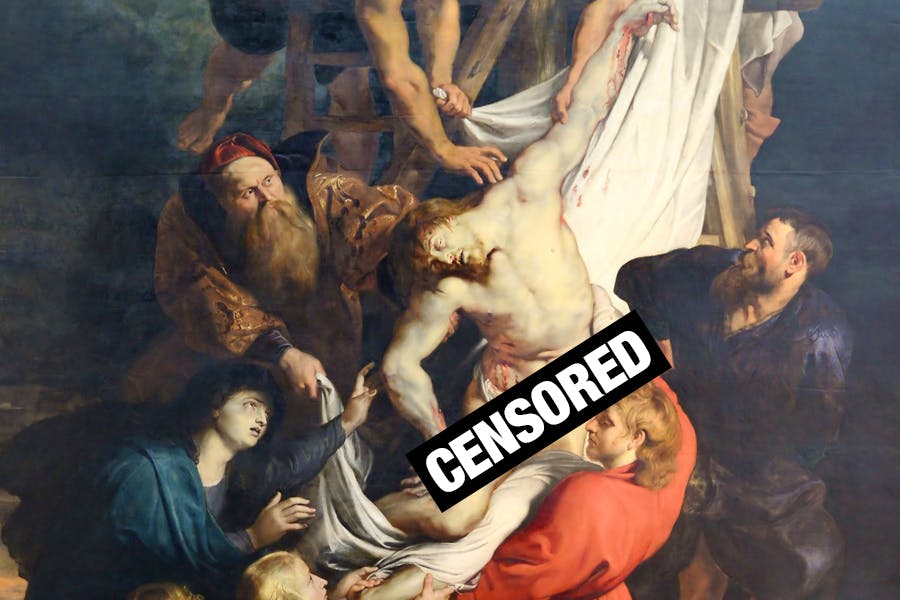
The right not to be censored by an arbitrarily superimposed moral hypocrisy of a minority…. is articulated in the Human Rights Act signed by the US as treaty and thus bound by US federal law in 1964. In the late 1960s and 1970s, the United States renewed its commitment to the international human rights system by signing, though not yet ratifying, several major human rights treaties.
Including the International Convention on the Elimination of All Forms of Racial Discrimination (ICERD), the International Covenant on Civil and Political Rights (ICCPR), and the INTERNATIONAL COVENANT ON ECONOMIC, SOCIAL AND CULTURAL RIGHTS (ICESCR).
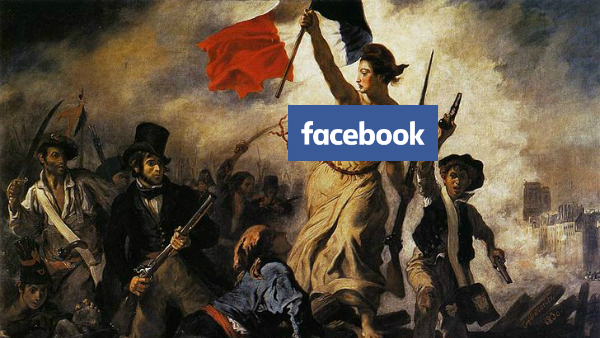
But Not From Facebook
These are the laws of the land that FACEBOOK has violated in unceremoniously and without warning censoring my work. Judgement without respite and only the cosmetics of appeal.
Facebook is not a community in any shape or form as long as its private owners impose their narrow, petty, puerile, and juvenile morals on us without listening to everyone, not just the complainers, who make up that community. That includes us good for nothing, when-are-you-going-to-get-a-real-job? artists.
There is no one to talk to at Facebook. No one to appeal to; no one to reason with and no one that takes responsibility for its actions. Human beings wrote the algorithms, built the servers and the browsers to increase the human bandwidth, not to distance us from ourselves!
There is no reason to fear the takeover of robots, algorithmic judgements and machines, for we have already surrendered.
Please repost this in part or in full on your wall and please share with your friends across all social media. Maybe Facebook will recall what it means to be a human with nipples one day and stop emulating the machines (who have no nipples).
Thank you,
Igor Goldkind
Still Human & Nippled
PS You think that I’m overreacting? Just another crazy, good for nothing artist making pointless noise? The Modigliani nude, the Picasso, the Rubens and all fell foul of Facebook and are all pictured as depicted after being defaced by Facebook in the name of their hypothetical Community Standards.
Being Banned From Facebook for No Bloody Good Reason: The Moral Failings of a Computational Society.

I write this mainly for my regular readers who may be concerned about my apparent absence from FB. I’ve always used FB as a fencing ground and now I’ve been fenced out, temporarily, for 3 days.
My account has been public for the last 5 years because I always fully intended to provoke, and attract engagement particularly from those that find offence or challenge here or just take exception to my posts.
But mainly, I use this platform to hone my writing skills in real time.
It’s a form of art activism, Artivism.
Bringing the origins of my work; the emotions, the outrages, the political anger and the moral dismay I feel directly to confront on their walls, in their replies and in their faces, those who are morally failing.
Who do I mean are morally failing?
Well, anyone who still says they support the treasonous weasel in the White House, is a start. But more generally Americans who should be more French than they’re English but unfortunately share more with the English propensity for worshipping dogs and traumatising their children.
The present generation of “youf”; be they white, black, Chicano, Native, Vietnamese, Gay, Chinese, Transitioning, Korean, Japanese, Indian, African, Middle Eastern (and every combination of the above), have more in common with each other than they will ever have with any of their previous generations.
Revolution needn’t be violent they just need to turn things around.
But to the point in question, I have not been in touch because I have been barred from both Facebook and Messenger for not following community guidelines, poor dears. Except that I am as much a part of that community as anyone. Not of an algorithm that flags random posts to FB ‘s appointed moral custodians.
My crime against the community?
Reposting the profile photo of a woman’s breast dripping with red wine into a crystal goblet. In fact, her nipple is obscured as it is drenched in wine.
You can see it for yourself here below.
What is the algorithm’s crime? Well nothing, it just follows and acts on long lists of tedious commands; executed in the blink of time
No mind, I’ve been a naughty, naughty boy and my shrilling mother will not allow me to save the human race from amnesia.
I can’t stop the algorithm from making a moral judgement that supersedes mine, or any human’s. I can’t have a quick word with the algorithm or anyone at FB to teach them what a juxtaposition of symbols that create an allusion to the truth.
Such as the sweet wine depicted being the mirror of the sweet mother’s milk as is symbolically conveyed by the nude breast. You cannot make that visual allusion with a bra.
It doesn’t work.
The breast must appear as nude as it is to the baby that seeks its nourishment. Sweet breast milk, sweet primal nourishment, sweet wine that I sip in the middle of my night to remind myself that I was once a child, protected and loved by my mother.
As were you.
Algorithms have no mothers. And those who are the masters of those algorithms long ago put their mothers out of their eye’s way, in homes.
Please Share,
Everything.

In vino veritas.
The Holocaust Survives

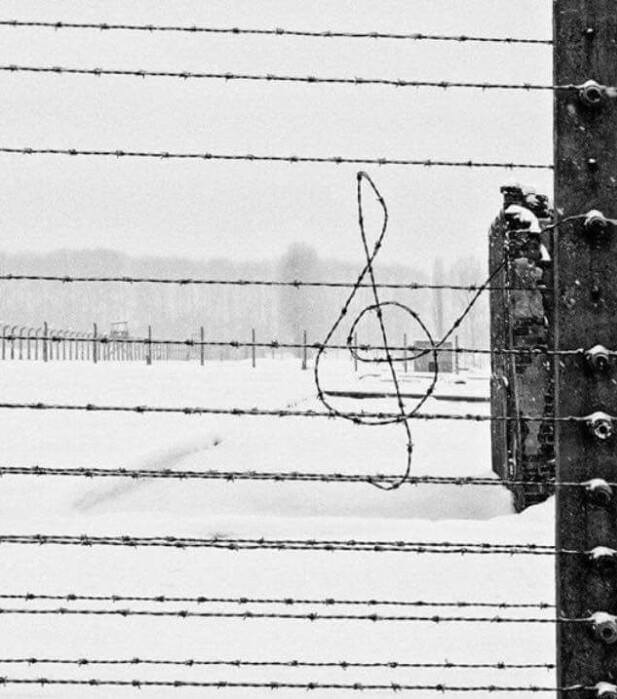 No other single event in history had more of an impact on the 20th century and by consequence the present 21st, than the mass brutalisation of families or men, women and children in the camps and now in the Syrian refugee camps in Lebanon.
No other single event in history had more of an impact on the 20th century and by consequence the present 21st, than the mass brutalisation of families or men, women and children in the camps and now in the Syrian refugee camps in Lebanon.
L’Chaim
Master of Puzzles
By Igor Goldkind
Ivan Moscovich has created more brain-teasers than most people have solved crosswords. Igor Goldkind set out to piece together his fascinating and harrowing life.
Ivan Moscovich has his life’s work wrapped up in a bundle of about 10,000 pages of A4 paper. On those pages there are some 5,000 separate puzzles, puzzles that range from the hang-on-let’s-look-OK-I-see to beyond the fiendish. Some are variations on themes, some utter one-offs. Some are to be made on paper or card, some are designs for tricky little – or big – devices. Moscovich calls them the S.A.M. archive – science, art and mathematics. The puzzles use the techniques of bafflement to teach, and they use beauty to bemuse.
Moscovich has been making puzzles since the 1960s. Now, at the age of 70, he’s looking to transform that life’s work into new formats. He and his colleagues have started up a new company to take the ideas on those 10,000 pages and put them to work in the digital arena. Moscovich is sure that there is room for them. Having looked with interest at hits like Seventh Guest, which friends told him were bringing new life to the world of puzzles, he was profoundly unimpressed. The puzzles were hard, sure (if you weren’t Moscovich, that is), but they were variations on a small number of underlying tricks, and they didn’t add up to more than just a set of puzzles. Moscovich thought that he – or people mining his archives in digital form – could do better.
“In digital media you can build overlapping linear trees, using the media to interrelate the concepts for the user. It’s important with any problem to see – at the same time – the different paths that can take you to a solution. Certainly this is the best way to explain scientific and mathematical concepts.” The collection of puzzles becomes a sort of puzzle itself: a maze, something to find one’s way through, something more than the sum of its parts.
Ivan is looking forward to trying to put all this into practice – not least because he enjoys the attitude of the people he’ll be working with. The way that games designers and programmers think fits into his world perfectly. He loves to be with people who are bored when they’re not trying something new, even impossible, when they’re not seeking a new solution. And he can make sense of himself by being part of a group; in fact, it has saved his life before now.
Ivan likes people who try to make sense of the pieces. That, in part, is how he got into puzzles – his delight in their ability to teach eager minds. As well as making puzzles for books and toys, he has used them as serious teaching tools for engineers – and pioneered the art of transforming the counterintuitive insights of puzzling into science museums with interactive displays. Putting together the pieces of an idea is much more important than putting together the pieces of a puzzle. The wonder is that by getting someone to do the latter, you can let them do the former.
A life in fragments
Moscovich’s own life is a bewildering array of puzzle fragments. Having met him on a CD-ROM project and learned some of his history, I started to wonder how to reassemble the fragments – and what they could be made into. One of the answers is a charming, brilliant septuagenarian. Another is 10,000 pages of A4. And a third might be a technological passage through the 20th century, from the industrialisation of death to the pursuit of pleasure. A journey that charts the territory of the 20th century’s technological revolutions and its human upheavals, from the Balkans to California, from museums to the Israeli defence industry, from the ruins of Austro-Hungary to the digital age, from railways to death camps.Moscovich’s parents were Hungarian, but he was born in Novi Sad, a small Serbian town. He still retains a central European accent that, to my ears (and probably to yours) sounds like the definitive voice of modern science and mathematics. “My father was a Hungarian who escaped from Hungary into Yugoslavia after the First World War. He was a painter by profession, but in order to make a living at that time he opened a photographic studio which became very successful. He named his studio Photo Ivan, after me.”
His description of an everyday childhood in Novi Sad paints a familiar
portrait of a middle-class craftsman’s family, complete with Yiddish grandmother and old-world family meals – and none of the hothouse intellectual atmosphere that produced Leo Szilard, John von Neumann, Kurt Gödel and other thinkers who left Budapest to dominate 19th-century thought. There was little to suggest Ivan’s strengths in science or mathematics – except, perhaps, a boyish infatuation with model aeroplane kits. He had, however, inherited from his father an inclination for drawing, and his father’s habit of tinkering with various gadgets – including an early air brush – to enhance his pictures was a constant delight to Ivan.
But when he reached technical high school, Ivan fell under the influence of a mathematics teacher given to explaining the precepts of science by means of science fiction. Ivan’s teacher opened up the world of mathematics by making problem solving fun. Ivan was entranced by the maths – and, later, showed that he had learned the method, too: rigorous scientific thinking through the lens of art and storytelling.
By then, though, the Hungarian fascists had invaded. They met with little resistance. And, soon afterwards, they took Ivan’s father from him. “Before they took him, he asked a Hungarian officer if he could say goodbye to my mother and in their final embrace he slipped this ring onto her finger.” Ivan holds up his hand and shows me an ornate gold band studded with eight small diamonds. It is the only surviving memento of Ivan’s youth; everything else was lost in the Holocaust. Ivan’s father joined 6,000 Jews and 4,000 Serbs executed en masse and thrown beneath the ice of the frozen Danube. All in one day.
Ivan continued his studies until the end of 1943, when the Hungarians “got cold feet” and the Germans invaded. “We really didn’t have any knowledge of what was happening in Poland in the ghettos or with the Nazis. We all hated the Hungarian fascists, but I still knew and liked Germans and, you know, communications were very different then; telephones didn’t work internationally. We were really disconnected from the rest of the world.”
When a Hungarian Jew escaped from Auschwitz and fled to Budapest to warn the Jewish community of the death camps, few believed him. So Ivan Moscovich was deported to Auschwitz at the age of 17.
“It meant stepping out of one world into another one. I was sent with my grandfather, my grandmother and my mother. When we arrived, my grandparents were immediately taken to the crematoria. My mother stayed in Auschwitz the whole time. After three or four weeks I was taken out of Auschwitz into one of the surrounding work camps. Young people were sent to work. I worked at laying rail lines.” The Nazi system was to provide rations for six months survival, after which the workers were supposed to starve to death in order to make room for new inmates. The meticulousness by which the operation was organised was not lost on Ivan. Nor would the memory escape him when two years later he found himself again working on train rails.
By that time he and, miraculously, his mother were back in Novi Sad. An acquaintance in the Ministry of Transport offered him a research position in the effort to repair Yugoslavia’s war-torn railway system. The post involved testing an enormous German machine that used high electrical wattage to weld rail lines together, a then untested invention. Mounted on a train carriage, Ivan travelled with the machine throughout Yugoslavia, in charge of the welding team. The machine was so successful that Ivan soon found himself elevated to a lofty position within Tito’s Ministry of Transport, accountable only to the deputy minister himself.
“There I was, a simple technician, at the age of 20, and I had all this power and no boss, really. People thought I was a top-shot communist because everybody had to do exactly what I wanted. The project became more and more successful, our production was way up and I was given orders to enlist more and more technicians for my team. One day I was called in by the deputy minister and was told that in order to create a 24-hour work shift, I was to take on 50 German prisoners of war.”
So, two years after surviving the German work camps, he was given control over a work team comprising high ranking German officers and regular soldiers, some Wehrmacht, some SS. He could have done anything he wanted. He could have shot them all and easily justified his actions to the authorities. He could have tortured them to death with gruelling work. He could have snapped his fingers and made them all disappear. But Ivan Moscovich had responsibilities, a quota to fill and a marvellous welding contraption to keep running.
“I had ten kilometres of rails to get out that week and it was a real dilemma whether to screw the Germans or to try to get the best output from them. I decided to increase their rations to get more work out of them, and sure enough they were grateful and worked even harder, which increased the output. I was very, very tough with them and I think they were scared of me. But I never revealed to them that I was a camp survivor. They worked for six months and then Tito released the prisoners.”
As it happens, Moscovich only worked on the German railways for six months. “I was lucky for the first six months. It was very important for survival in the camps to be with your people, your clan of friends and family;
it made life easier. You couldn’t get ill, because that meant execution, but curiously, if you could show a work-related injury, a visible wound, you could be seen by the SS and granted a day or two of hospital. One day I announced myself with a bad wound. While everyone else went on work detail I was left in the enormous courtyard with a broom to clean up, completely by myself. Suddenly the gate opened and a commandant’s car stormed into the courtyard and headed straight for me. The German officer jumped down from his car, grabbed me by the scruff of the neck, threw me onto the platform of the vehicle and drove off. I was kidnapped.” Later Ivan learned that there had been an escape from a neighbouring camp and the camp commandant had stolen Ivan to make up his tally of inmates. The mathematics of death had to add up.
“Up to this point all of my feelings had been one single feeling: an enormous outrage. Rage that somebody, anybody, another power, could take me away from my decisions, my everyday life, and put me in an environment where whatever happened was not under my control. I was young and maybe too strong an individualist, but it was rage that kept me alive.” In the new camp this life-sustaining anger was broken, until he discovered a distant
Hungarian cousin running the camp’s kitchens and being the “godfather” of the camp. Then he found some school friends of his father’s. For several weeks Ivan rebuilt his spirits and his body. Then the Russians pushed back the German line, and the SS made their lethal preparations for evacuating Auschwitz.
The problem to solve was – how to survive.
The Museum Man
In 1952 Ivan found a new clan – and became a leader. He set out for Israel to join his now remarried mother. On the boat to Haifa, Ivan was approached by Israeli officials interested in his skills and qualifications. The new state was hungry for skilled technicians. By the time Ivan reached Haifa he already had a position in the Ministry of Defence waiting for him. “In my group there were mainly these Yugoslav and Hungarian technicians without any training in science and mathematics. The language problem was enormous, and here was this group of technicians involved in scientific research without any basis in the field. I don’t know how it happened, but I was selected as someone who could teach the other members of the group some basic science.
My boss wanted me to instruct them outside of a formal classroom using demonstrations, models and visual means. That was really the start that put me in the direction of puzzle making.”Ivan found himself playing around with visualisations and experiments. He worked hard to come up with ways in which complex ideas could be explained visually, not so much to convey a deep academic knowledge of science and mathematics but to engender an intuitive grasp of the subjects and, most important of all, to instill the knack of problem solving needed to tackle more important scientific and technological puzzles.
By the end of the 1950s, Moscovich was creating puzzles almost all the time, and practice had revealed a rare gift for making puzzles that could be revisited, puzzles that retained a depth, an impact, even after they had been solved. “I tried to design models that were compact and effective, and in which the experiments could be repeated a number of times. This required completely original design conceptualisations. My boss, Ernst David Bergman, was the leading scientist in Israel at the time, and founder of the Weizmann Institute. He loved my work, and it was he who had the idea that some of those objects I had designed could be exhibited. That was the basis of the founding of a science museum.”
In 1959 Tel Aviv established its Museum of Science and Technology, the first of its kind in Israel. Ivan worked non-stop for two-and- a-half years converting five disused British barracks into a museum, begging and borrowing every available resource. The museum finally opened in 1964 with Ivan as its curator and director. It was the first science museum to emphasise hands-on, interactive exhibitions, and it quickly attracted international attention. His position as curator became a springboard from which to explore and express his interest in art, science and mathematics, and to do it all with the benefit of a growing international reputation.
In 1965 Frank Oppenheimer, brother of the more famous Robert, having heard of Ivan’s fantastic museum to science, visited Tel Aviv with Admiral Lewis Strauss, chairman of the US Atomic Energy Commission. The two became fast friends, sharing a childlike fascination for technology and science as well as knowledge of the darker side of machines and technology. This was four years before the opening of the Exploratorium in San Francisco, for which Oppenheimer imported many of Ivan’s installations. Some remain on exhibit to this day.
The puzzle of death
In 1944, while Oppenheimer was working with his brother on the problems of designing the first atomic bombs, Moscovich was on the death march to Bergen-Belsen. Here, too, the problem was how to survive. “Everybody said those who stayed, declaring themselves ill, would be shot. As it happens, they were liberated by the Russians two weeks later. And we walked barefoot and nearly naked through the worst winter of the century, westward to Bergen-Belsen.”At Bergen-Belsen, the last stop for the Final Solution, Ivan gave up all hope. He had been assigned to a work detail in the then still beautiful city of Hildesheim, near Hanover.
“Near where I worked was a statue of the mathematician Leibniz with beautiful writing on it.
And it was so strange that after so long in hell, I am seeing that statue. I felt I was being visited by a ghost, an image of the real world I had left behind. It was then, only then, that I remembered my previous life, my teachers, my studies of mathematics and all that. Up till then my memories had been blocked out. It’s impossible to imagine that every minute, every second of life in the camps, you were only thinking of survival; there was no room for any other thinking. But here was this beautiful statue of Leibniz that reminded me of the real world.”After two weeks working in Leibniz’s shadow, “I heard this strange noise … mmmmmmmmmmmm … that filled the air, and we suddenly realised that the sky was filled with planes. The next second everything was on fire. It was the Allied carpet bombing of Hildesheim. I saw German soldiers burning, running, and everything became chaos. I ran. After a while I stopped and looked back at the city, which was one big torch. I found myself alone in a giant field, a free man. But a free man in pyjamas, a free man with nowhere to go. I weighed 45 kilos.” Ivan turned around and started walking back to the depot. With his camp clothes, his inverted mohawk, there was nowhere to run. A German woman ran out of her house and thrust a chicken leg into his hand; she never said a word.
Recaptured, he was beaten and sent back to the camp. The dead lay in their thousands. “One barracks the Germans were using to fill with dead bodies, hundreds of dead bodies. After work one evening, I decided that instead of going back to our sleeping area that I would crawl to the top of this mountain of bodies and find myself a horizontal place. There was a slot at the top where I could see what was happening outside. I slept there for five, six days; I don’t have any notion about how much time passed. It was bliss to sleep; quiet and beautiful. It was no problem sleeping on a bed of a hundred dead bodies. Otherwise, I wouldn’t have lasted.
“One day I awoke from my sleep to complete silence. I looked through the slot to see the camp was completely deserted. Suddenly through the main entrance, which I had in my view, drove a single jeep with four English officers that stopped in the middle of the square. I rolled down the hill of bodies like a log and then I felt like I was running but I must have been moving very, very slowly. I was, I think, one of the very first to reach the jeep, and you know those guys were looking at us like they were seeing aliens for the very first time. Like first contact.” He collapsed into the arms of an English officer.
Moscovich was deathly ill. By the time that English officer caught up with him again, in a local hospital, he looked unlikely to survive. So the officer found a German doctor and frog-marched him to Ivan’s bedside. The Englishman pointed his revolver at the terrified doctor’s head and said, “If this patient dies here, you die here.”
Ivan Moscovich did not die – nor, at that point, did the German doctor. Ivan was transferred to a Red Cross hospital in a small town in Sweden – a town so boring, he now swears, that the local newspaper actually ran daily updates on Ivan’s weight gain for lack of more interesting scoops. Ivan describes his slow recovery as matter-of-factly as everything else.
“At a certain moment you know, the organism decided,
‘OK, we’re going to stay in this world. ”
Toy story
In the mid-1960s, as his fame grew in Israel and beyond, another new world opened for Ivan Moscovich. “I was working on a puzzle at my desk one day when one of the ushers came in and said a couple of tourists wanted to see me. I was busy and didn’t have the time. The usher came back and said they only want five minutes of your time and they wouldn’t give up. So I agreed to see them, Mr and Mrs Eliot Handler. I wasn’t very enthusiastic but we talked and then Mrs Handler said ‘I would like our chaps in California to see your puzzles; are you ready to come over to California?’
I didn’t take them very seriously. Two weeks later I received a call from a travel agent who had a ticket waiting for me to go to California to visit Mattel.”Eliot and Ruth Handler founded and owned Mattel Toys. Its twelve-storey building in Hawthorne was the centre of America’s toy industry. Sales of their Barbie dolls were colossal, but the Handlers were keen to expand the Mattel range beyond just dolls. When Ivan came out to visit them they immediately offered him a three-year open contract to create games and puzzles for US$25,000 (£16,000) a year. His “Brain Drain” puzzle game promptly sold a million copies worldwide. This success was repeated with a series of puzzles including “Play It Again Fun”, “Visual Brainstorms”, “The Brain Power Decathlon” and “The Hinge”. Soon toy and games manufacturers from Japan to Europe were clamouring for more and more puzzles from the master. Ivan Moscovich’s gift had found the most widespread of all its expressions.
Fitting together the pieces
Somehow, all these pieces add together to produce a remarkably creative man, and one with a unique vantage point. Ivan has seen countries destroyed, reconstructed and created afresh. He has faced the most utterly depersonalising totalitarianism ever attempted, and rejoiced in the individual quirkiness of children’s imaginations. At an age where most seek nothing new at all, he is embracing the digital world with the enthusiasm of a seven-year-old offered a Game Boy.
How does he see the end of the century?
“At present we are in a greater need for a fresh creative spirit than in any other period of human history. Less and less experience is being gained directly through activities. Sensations tend to reach us increasingly only after passing through layers of media filters. Children manipulate electronic gadgets and play with computers, which is all very well, but ultimately lacks perspicuity and full sensual enrichment.
I hope to create open-ended concepts that trigger chain reactions. Ideally, the player plays my game, solves the problems and is motivated to invent his or her own variations of rules, ultimately creating his or her own games, puzzles and aesthetic structures.”He has an avowed predilection for the physical. You can see it in his hands as he solves his puzzles. But Ivan sees unique possibilities in the digital world, possibilities that flow from the nature of his puzzles. “I’ve already published several books of my puzzles, but in a book you are restricted to the lin- ear progression of page after page, without much freedom. To interrelate the conceptual links between problems and solutions you need to be able to cross reference non-linearly, which is what a CD-ROM does.” After all, this is the point of his S.A.M. archive – that it combines science, art and mathematics as different paths to the same goal. The trajectories can be changed forever; the solutions will still provide the improvements of the self that Moscovich cares about.
“You know, humanity has been defined in various ways. For instance, as Homo habilis, skilful man; as Homo sapiens, wise man. I prefer Homo ludens, playful man, as the best definition of modern 20th-century human beings.” It was a hopeful definition that Johan Huizinga came up with in the late ’30s, at the time that young Ivan was learning science through science fiction – but the hope was serious and fearful. Huizinga was quite aware that playfulness had its dangerous side, and that the coming war would be a great, dark game; it was peace, he always said, that was the serious business.
These days, Ivan Moscovich is at peace. He lives a quiet life with his wife Anitta in west London. Within him, though, you can sense the machines within machines working, a vast inner factory of the abstract. It is hard to imagine him without them – even in the worst places the century’s history has to offer. I asked him whether his puzzling mind had helped him in Auschwitz, in Belsen; whether he had made his retreat into a private world of abstraction and pure thought.
“No. You know, it’s very difficult to explain, to understand. All of your time, all of your energy, all of your thinking is just focused on one thing: surviving.”
He did. And from the simple fact of survival he has pulled together the fragments of his life into a living inspiration for the rest of us – a puzzle worth thinking about.
Igor Goldkind writes science fiction, comics and essays, and lectures on technology and culture.
If you are concerned with the Syrian refugee crisis, the largest forced mass emigration of refugees since the Jews escaped Germany and Poland, there is something you can do. Inform your self through the Syrian American Medical Society who are running projects and providing medical supplies to the victims of the dictator Assad’s brutal and genocidal war against his own people.
Participate, if you live in southern California by attending a special exhibition of protest art at The Misfit Gallery in La Jolla California on April 21st.,
@ 565 Pearl Street. 92037 6-10 pm
I will be reading my published and unpublished work in the Spoken Word progamme as well as performing with The Third Act of Creation. But there’s much, much more. It’s a celebration of human rights and protest art to raise money for SAMS and also to join others in Mindful Resistance to the tyranny, bigotry and corruption in our present government and around the world. WE are THE PEOPLE, so instead of just complaining or getting depressed,
Let’s do something!
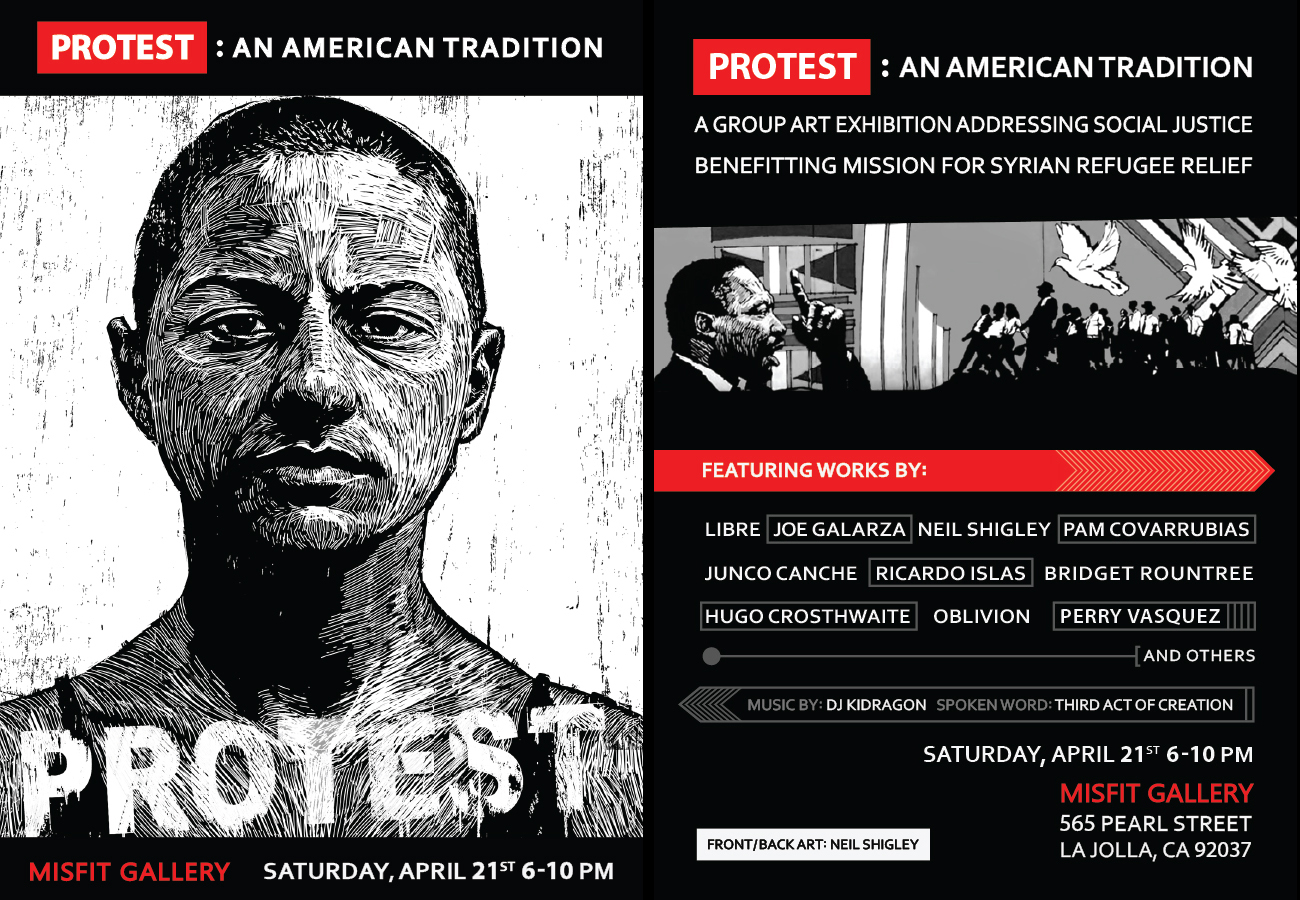

Nobody Talks to Me Anymore

Has been entered int the Realistic Poetry Contest and thus is no longer available on my blog as it is defined as non-exclusive or previous publication by the contest rules.
Who knows, I may even win.
Either way, it returns once the contest is over in February
Tune In.

Speculative Realism: What It Means, What It Is and Why You Need to Know About It
Charlie Brooker’s Black Mirror is really the best TV on your screen. It quite literally holds up a black mirror not just onto our society but to each one of us as components, now data-cogs, of the society we can no longer see anymore without the aid of mirrors. We are like goldfish in a goldfish bowl kept rotating by the shortness of our attention spans and never even realising the wetness of our environments.
Charlie Brooker, his cast, co-writers and the producers at Netflix are doing us the moral service of reminding us of the remnants of own moral outrage and how our own ethical boundaries have long since been trespassed by the dark consequences of convenience and more efficient processing.
The machines never took over, we just surrendered.
 We are like commuters stuck in traffic complaining about the traffic that we are actually both part of and complicit in. Even though from our subjective vehicles, we cannot see it. Traffic controllers retain the power however it is a remote distributed, bureaucratic, systemised power that is no longer subject to one human’s judgement. Who do you alert when the traffic lights stop working? You don’t have to, they already know.
We are like commuters stuck in traffic complaining about the traffic that we are actually both part of and complicit in. Even though from our subjective vehicles, we cannot see it. Traffic controllers retain the power however it is a remote distributed, bureaucratic, systemised power that is no longer subject to one human’s judgement. Who do you alert when the traffic lights stop working? You don’t have to, they already know.
I have as of late, paraded the term Speculative Realism, borrowed from the French post-idealists. Who understand that the only way to view ourselves clearly is no longer as mere individuals but as components of a larger neuro-ecology that contains, constraints and ultimately defines us. We are the furniture that a system beyond our own subjectivity keeps rearranging “on our behalf”, “for our own safety”. “for your security”.
I have only slightly re-engineered the term in the context of a literary genre, of storytelling, perhaps the sole remaining respite of human freedom. A story is a purely human phenomenon untainted by machine efficiency as machines don’t need to tell each other stories. But we do, and in doing so we may be flexing the last quiescent muscle of our humanity. A story is comprised up 3 interlocked elements: The storyteller, the story and the audience (or to whom the story is told). At least two of these components are human, subject and object; the rest is merely synaptic grammar. 
When a story is told and heard, a condensed complex of information, human knowledge and near spiritual wisdom is transmitted in a compact instant well beyond the speed or circuitry of a microchip. Remember, we are the minds that created and defined data. It is that creative mind that is both alert and receptive to the information that is vital to our survival, as a species and as sane human beings. Storytelling is our salvation and Poetry is better than prayer because you don’t have to pretend that someone is listening.
Speculative Realism is just my tag for vital, survival information being conveyed by storytellers. As essential as where the next herd of buffalo might be. Speculative Fiction has here to provide the luxurious canvas for our imaginations to ponder possibilities. But Speculative Realism is not what you might do ‘if…’ but what you will have to do ‘when…’ To survive, to retain your own identity and perhaps even your sanity. Speculative Realism is imperative, it carries the mental equipment we need to survive.
 Black Mirror is a series of short cameos of Speculative Realism. The term is beginning to gain traction since I first observed the emergence of this genre in film, fiction and screen entertainment. I have since read a reference to Neil Gaiman‘s work described as Speculative Realist in his use of double vision, (the seeing of two apparent contractions as one), in his characterisations. I don’t know if he thinks that, you’d have to ask him.
Black Mirror is a series of short cameos of Speculative Realism. The term is beginning to gain traction since I first observed the emergence of this genre in film, fiction and screen entertainment. I have since read a reference to Neil Gaiman‘s work described as Speculative Realist in his use of double vision, (the seeing of two apparent contractions as one), in his characterisations. I don’t know if he thinks that, you’d have to ask him.
Cyberpunk auteur Bruce Sterling, in Wired, refers to Speculative Realism as Philosophy Fiction, which is as good a handle as any because Speculative Realism defends the autonomy of the world from human access in a spirit of imaginative audacity.
In his recent Edinburgh University Press publication Speculative Realism and Science Fiction, Brian Willemsuses a range of science fiction literature that questions anthropomorphism to develop the Speculative Realist position. He looks at how nonsense and sense exist together in science fiction, the way in which language is not a guarantee of personhood, the role of vision in identity formation and the differences between metamorphosis and modulation.
 These are useful critical and academic insights. But the real meat is in the eating and Black Mirror takes you to the centre of the Speculative Realist banquet, piling your plate high with outrage, moral panic and cautionary tales of horror. I suggest tasting a sample as we’re all going to be eating from this same table for the very foreseeable future,
These are useful critical and academic insights. But the real meat is in the eating and Black Mirror takes you to the centre of the Speculative Realist banquet, piling your plate high with outrage, moral panic and cautionary tales of horror. I suggest tasting a sample as we’re all going to be eating from this same table for the very foreseeable future,
the future that has already arrived.
© Igor Goldkind 2016


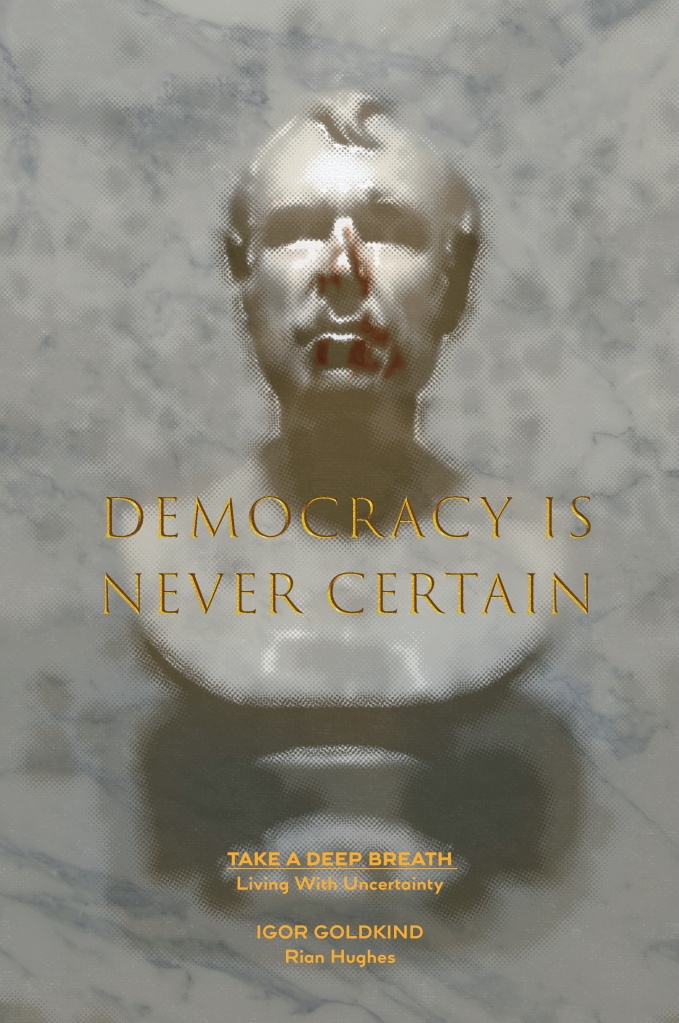
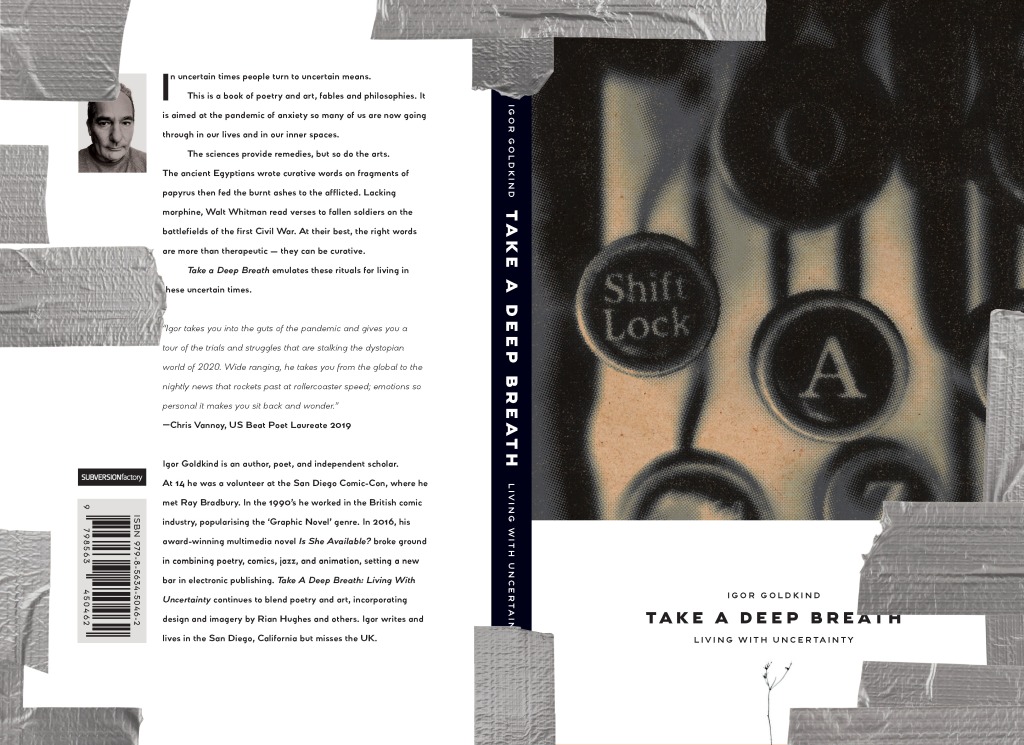


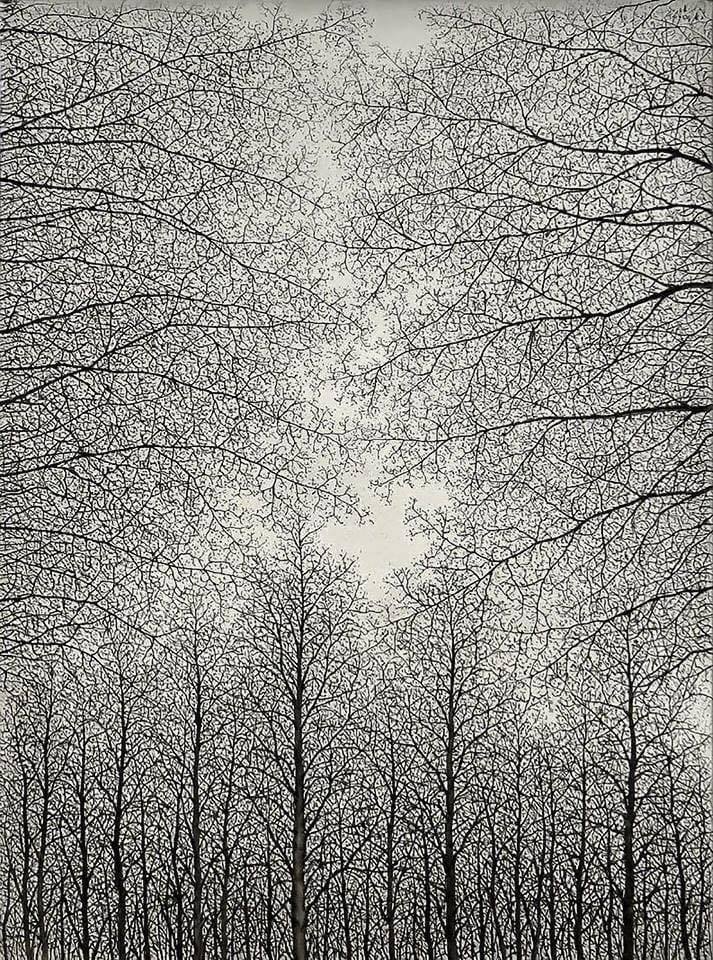

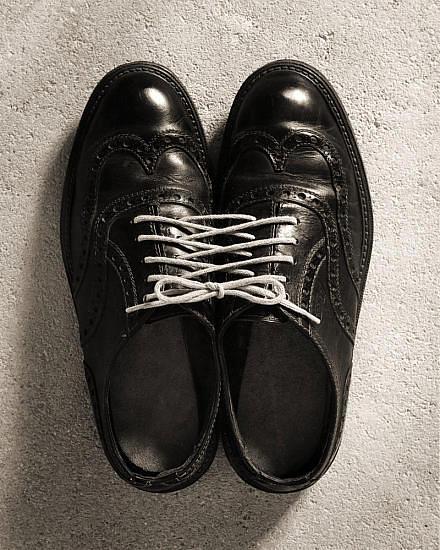
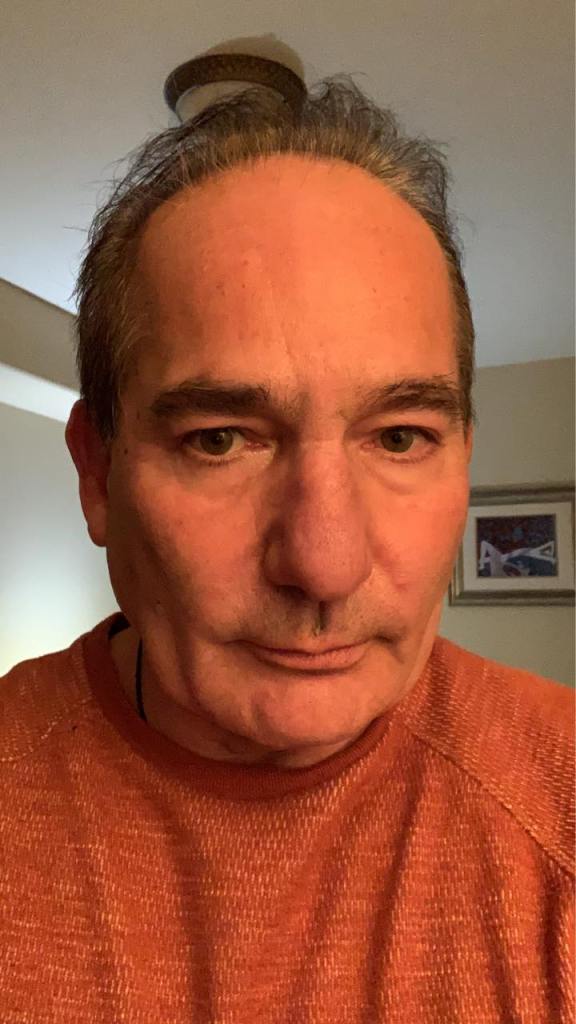
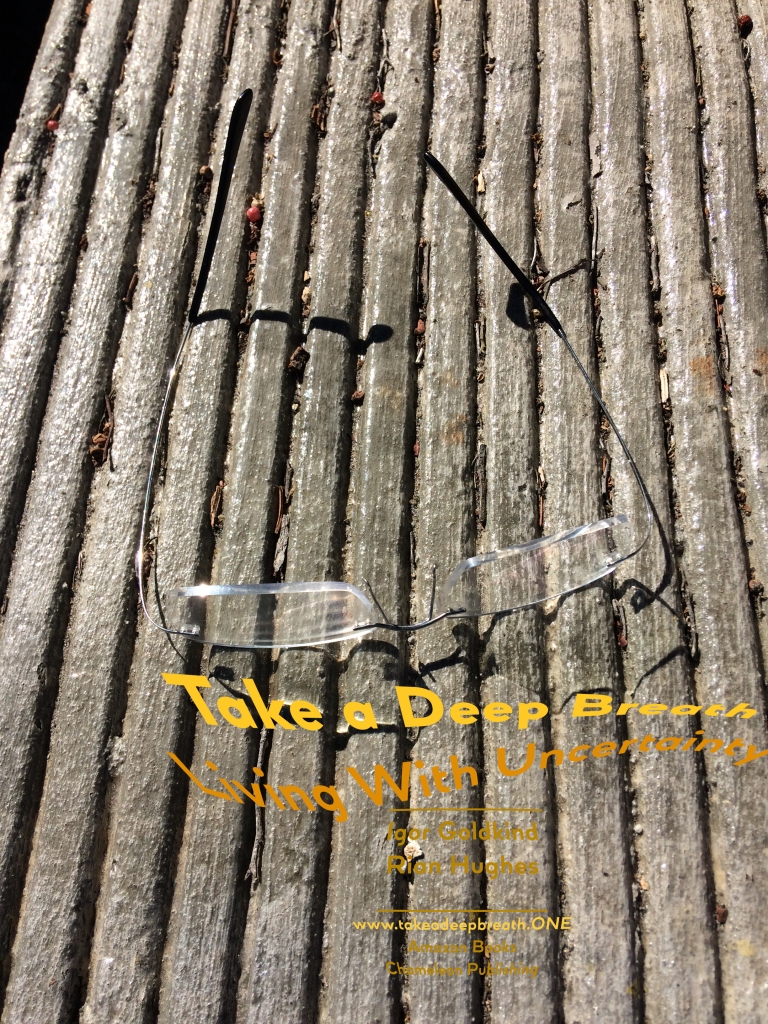

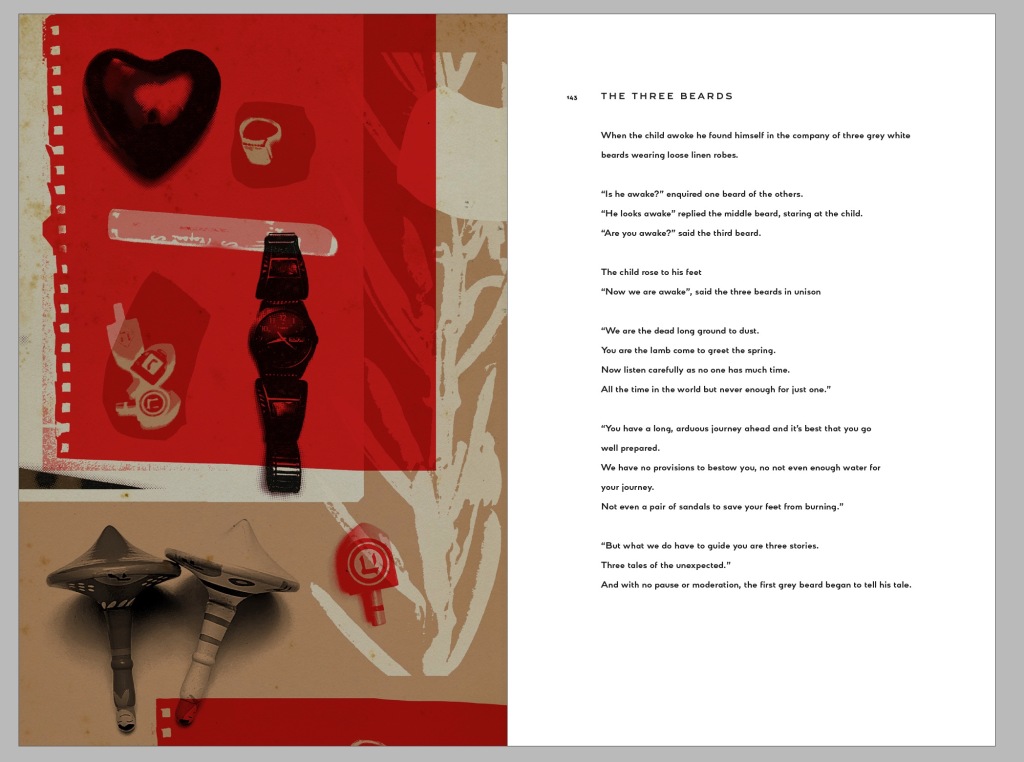
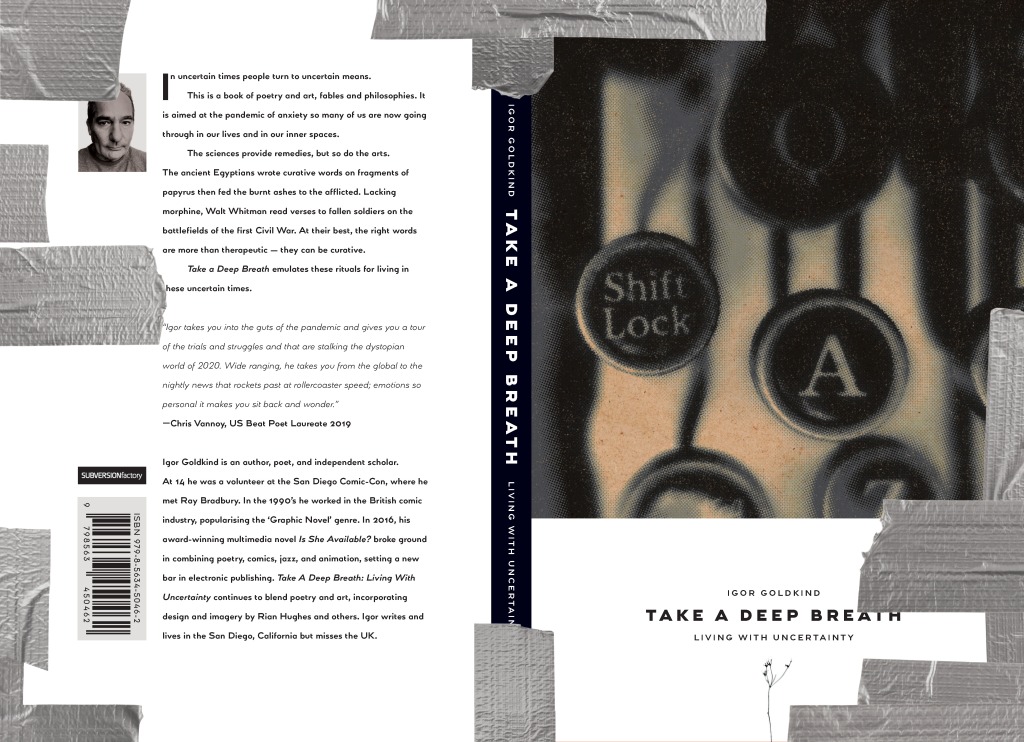
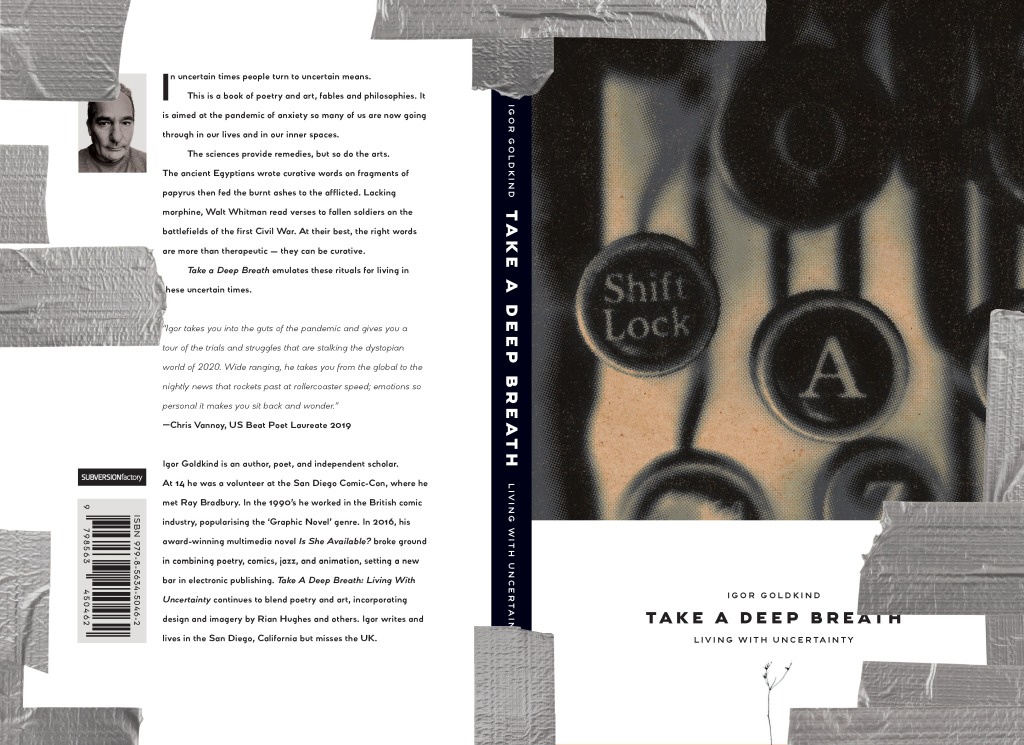

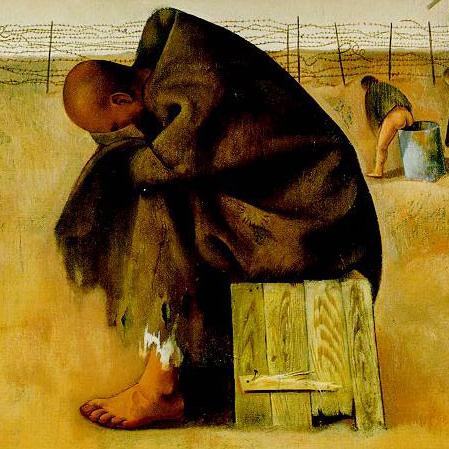
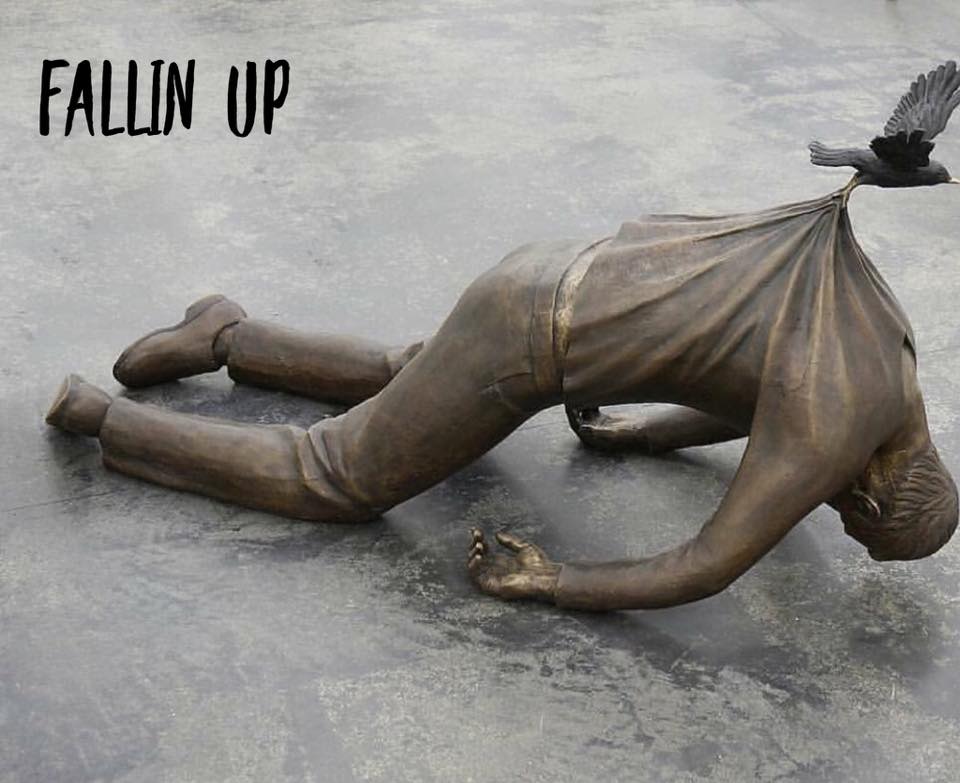



 I am nurturing in the sense that I get a kick out of helping my friends, or even those I don’t know, sometimes just with honest conversation.
I am nurturing in the sense that I get a kick out of helping my friends, or even those I don’t know, sometimes just with honest conversation. 


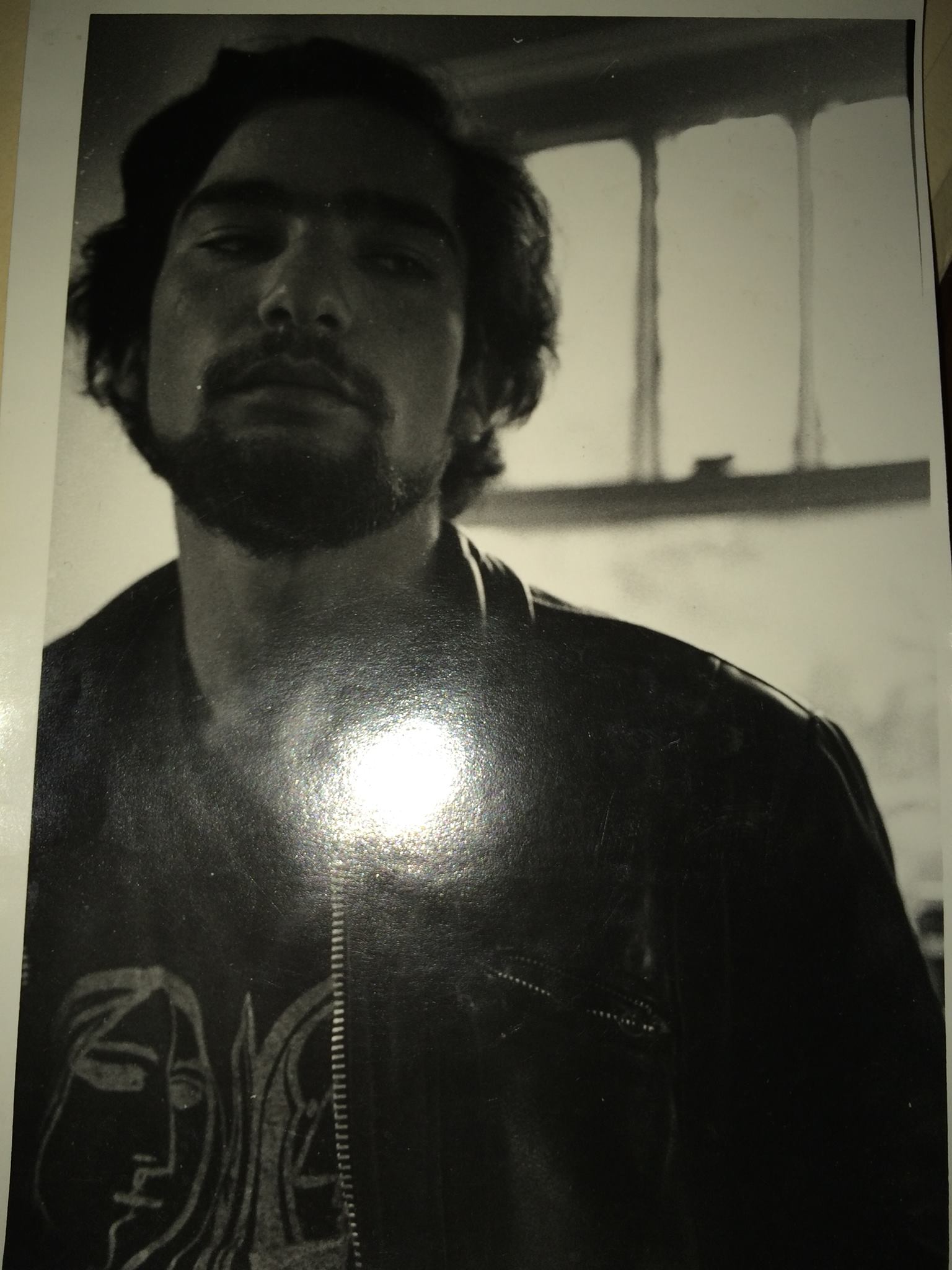
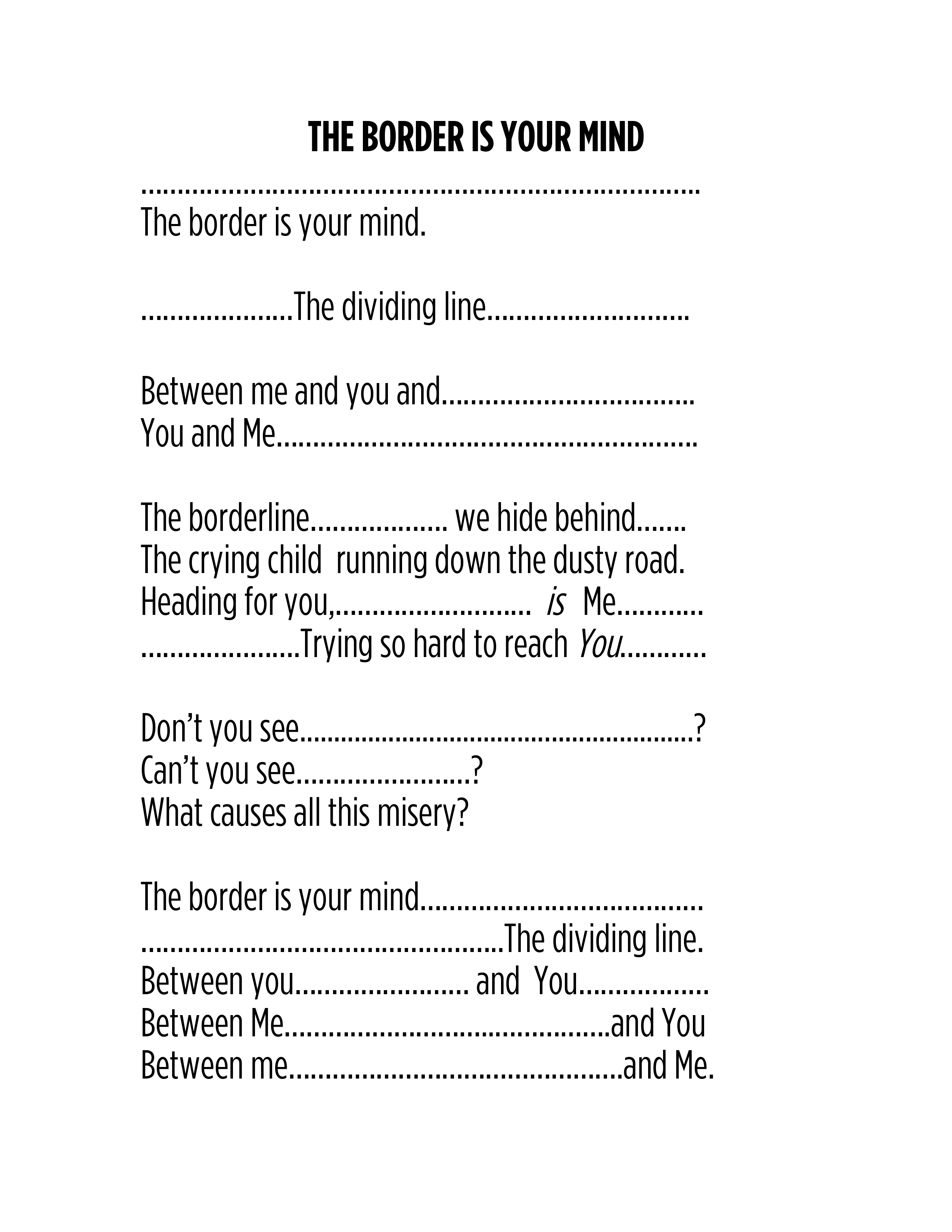
Go Fuck Yourself!
Go Fuck Yourself, you pathetic failure.
Leave the arts to the poets, the dancers and the painters
Go get yourself a real job, a real vocation.
Fuck off and leave those of us who fight for our culture alone.
Fuck off and stop leeching the creative spirits of the secular martyrs who have sacrificed their lives on the holy altar of Art, Truth and Freedom.
Go Fuck Yourselves!
And each other in your sleazy stinking orgy of self-gratifying bigotry and weeping pustule aesthetics.
Go Fuck Yourself in the Ass With Your Own Extended Nose
Go let yourself get fucked in the ass by all the bogus arts nonprofits that pocket tax money to further their own finances while cheating artists and reviewers out of their livings.
Go write yourself a grant.
Write up your mission statement in day-glow gold-gilded writing.
Put on your ‘supporter-of-the-arts’ makeup
Keep counting the coins in your bookseller’s till
While prescribing the rules that determines who is in and who is other.
Go Fuck Yourself and try reading a book for a change.
Go read Whitman, Bukowski, Anais Nin and Henry Miller on art.
Let William Burroughs into your dreams.
Go get yourself a self education.
In the meantime, shut up, sit down and just listen:
You are the enemy of art, the enemy of poetry, the enemy of life.
And we’re coming for you.
Because all you are is in the way.
Share & Disseminate This With Your Friends
August 24, 2019 | Categories: Americana, art, beat, bigotry, books, comments about poetry, digital insurgency, Igor Goldkind, Illustrated books, literature, Mindfulness, new poetry, poetry, politics, Reigion, spoken word | Tags: art, bookshops, bookstore owners, nonprofits | 1 Comment